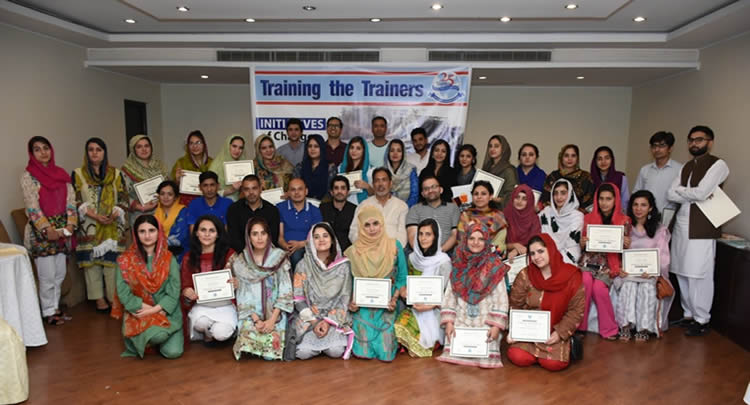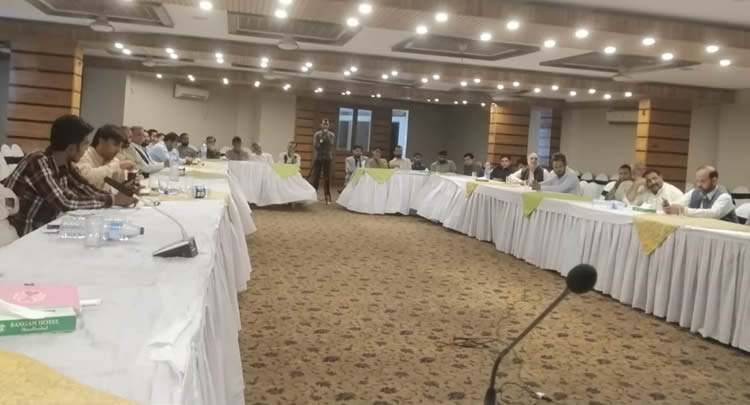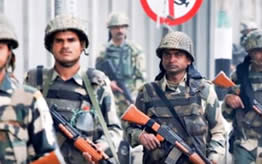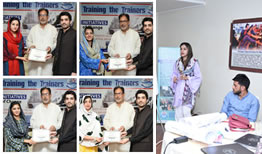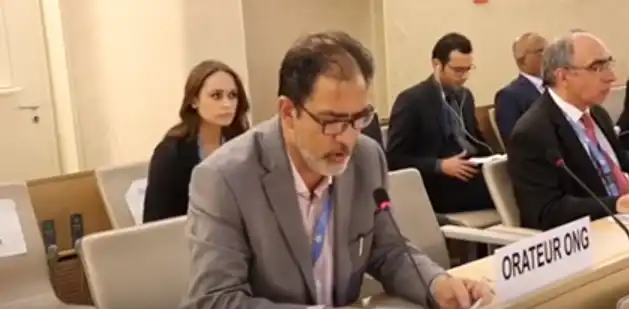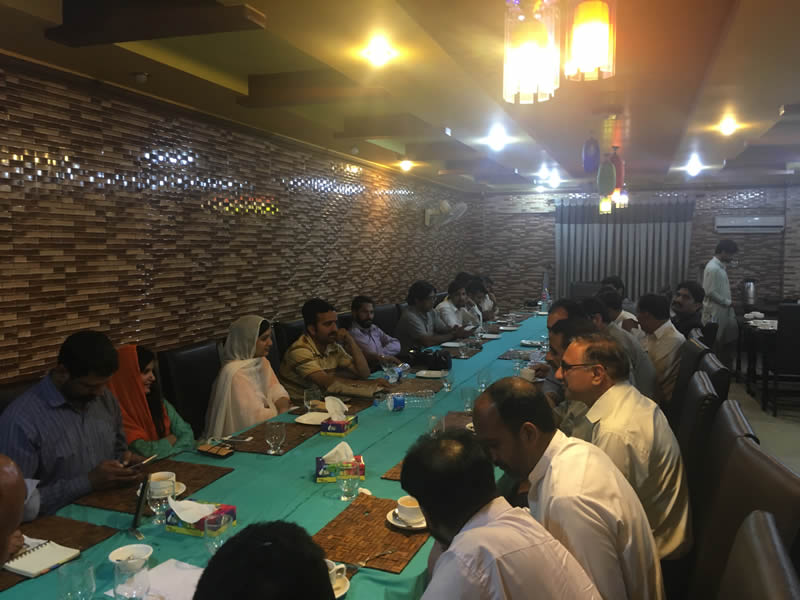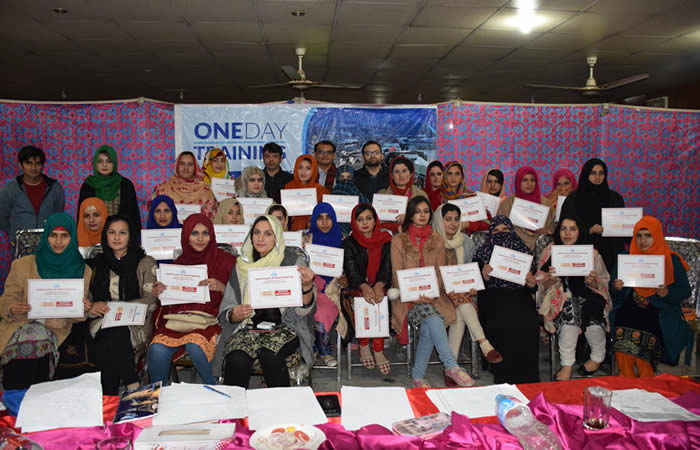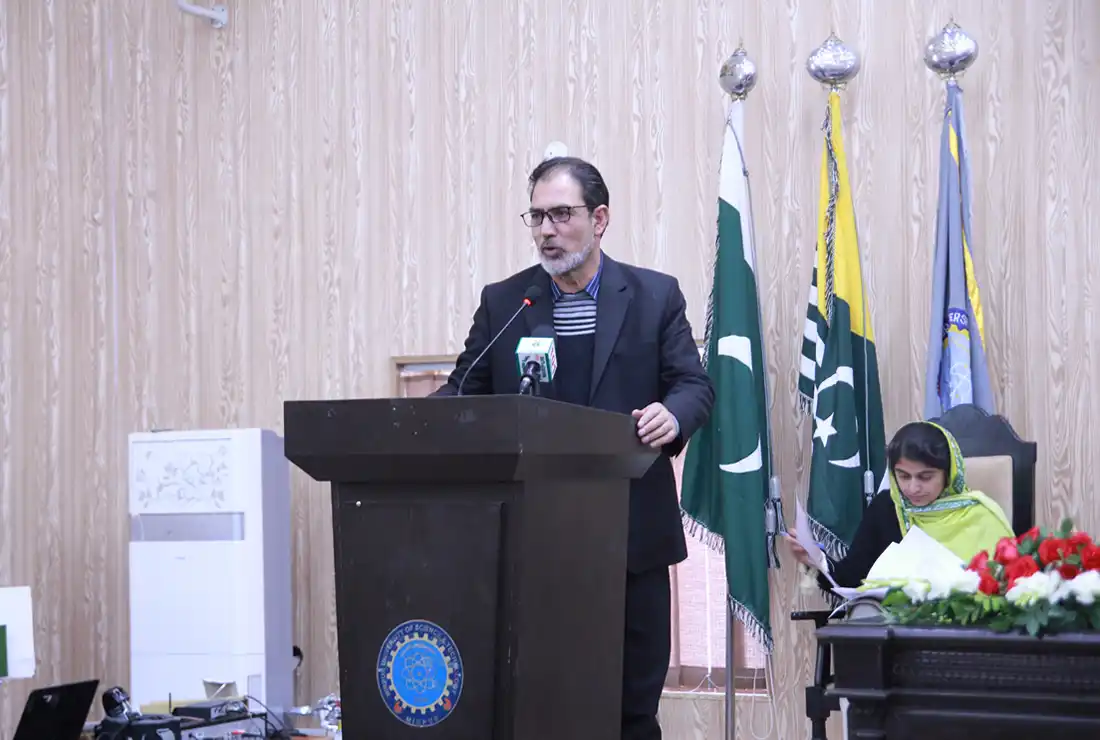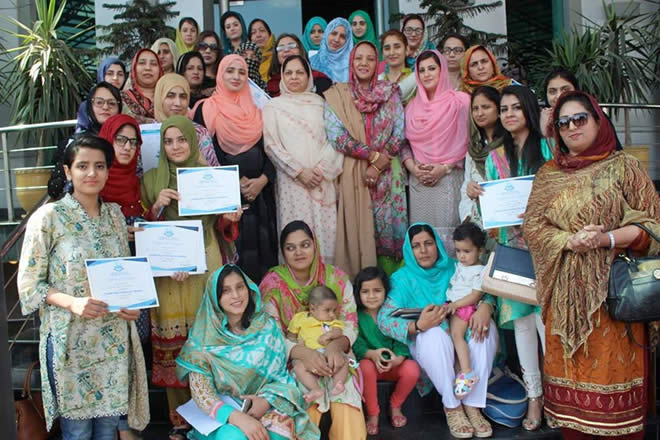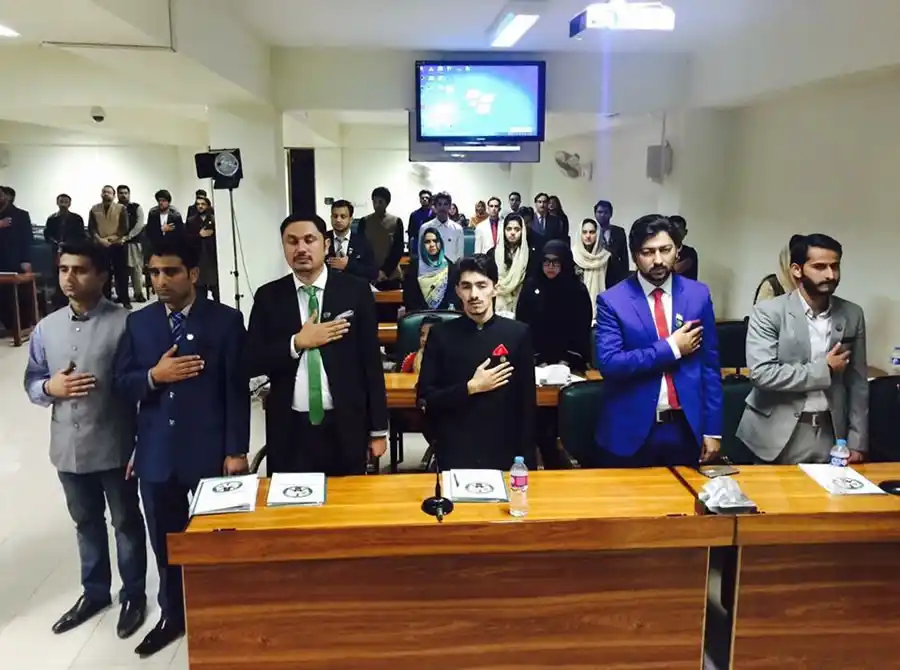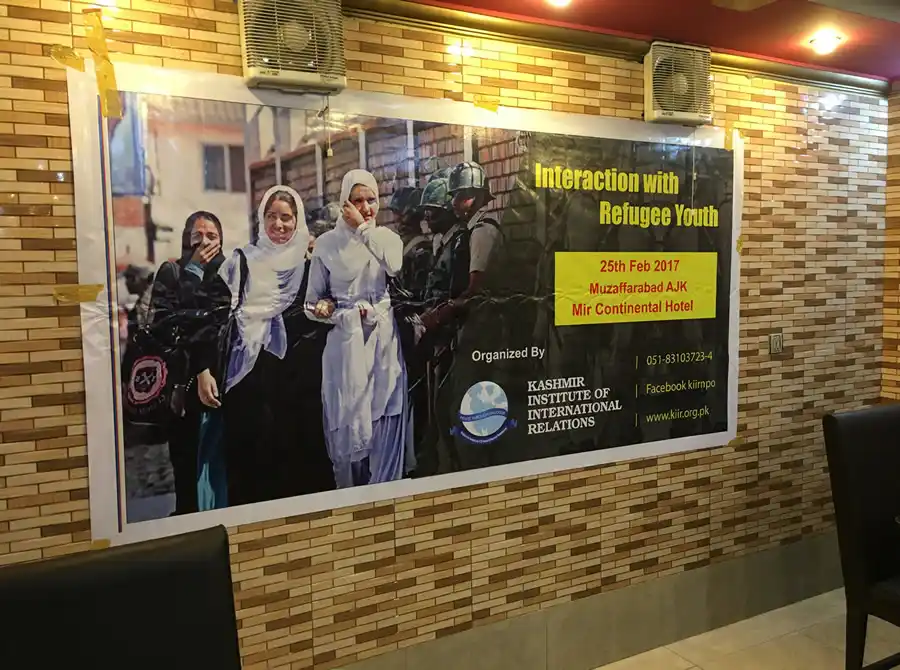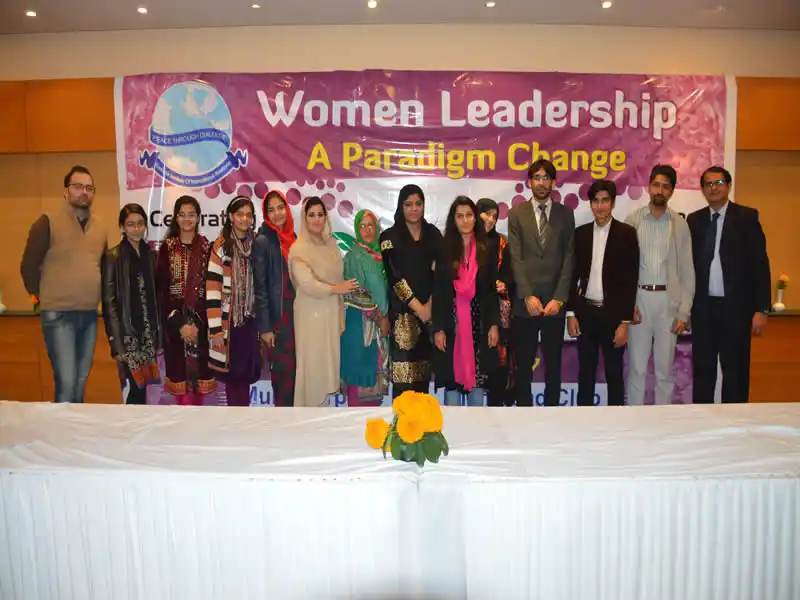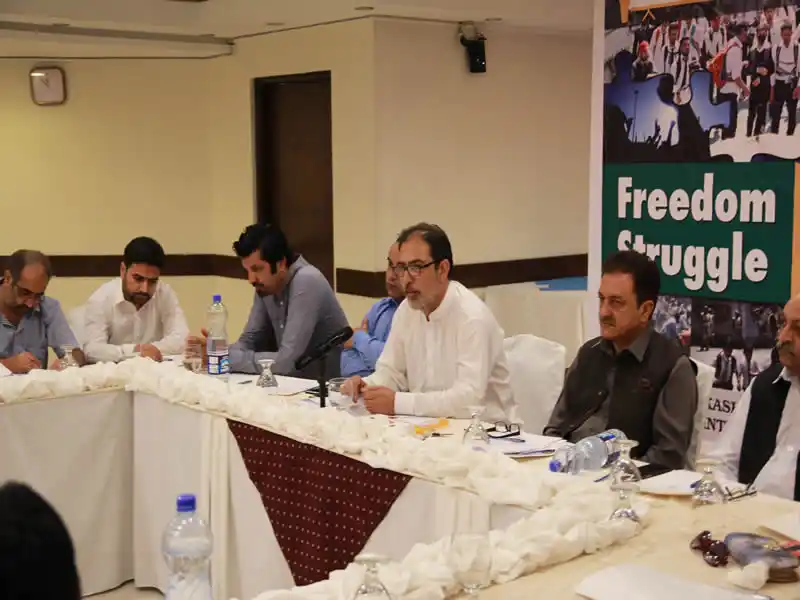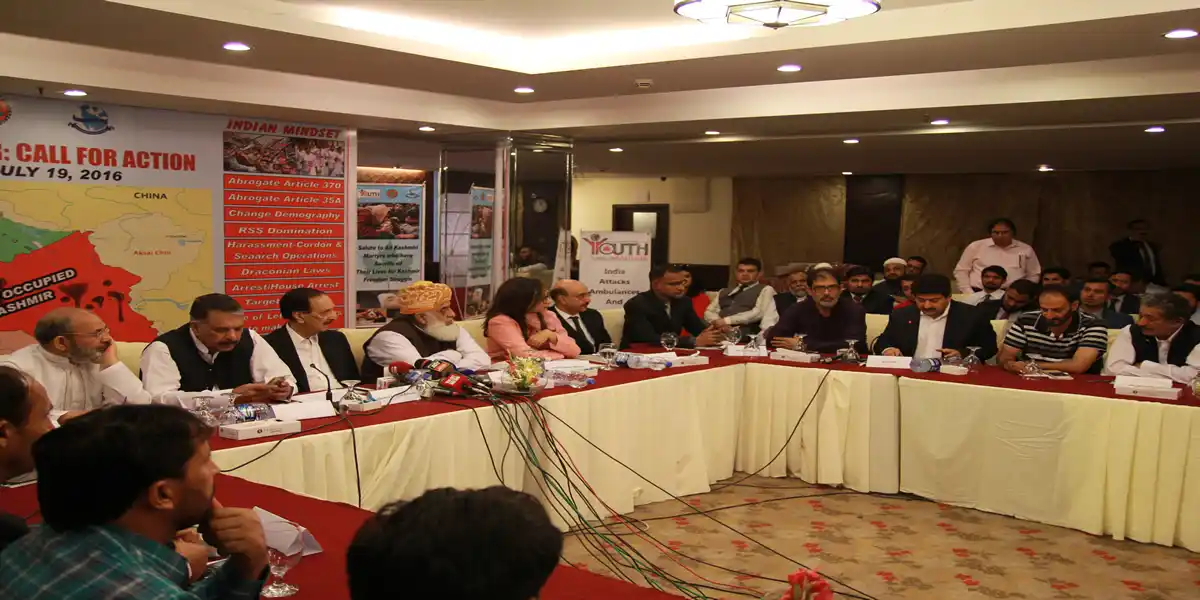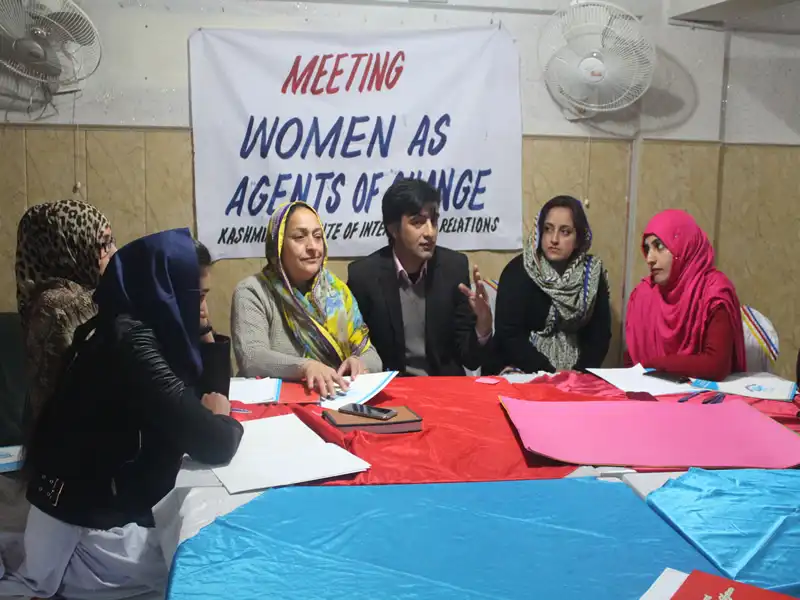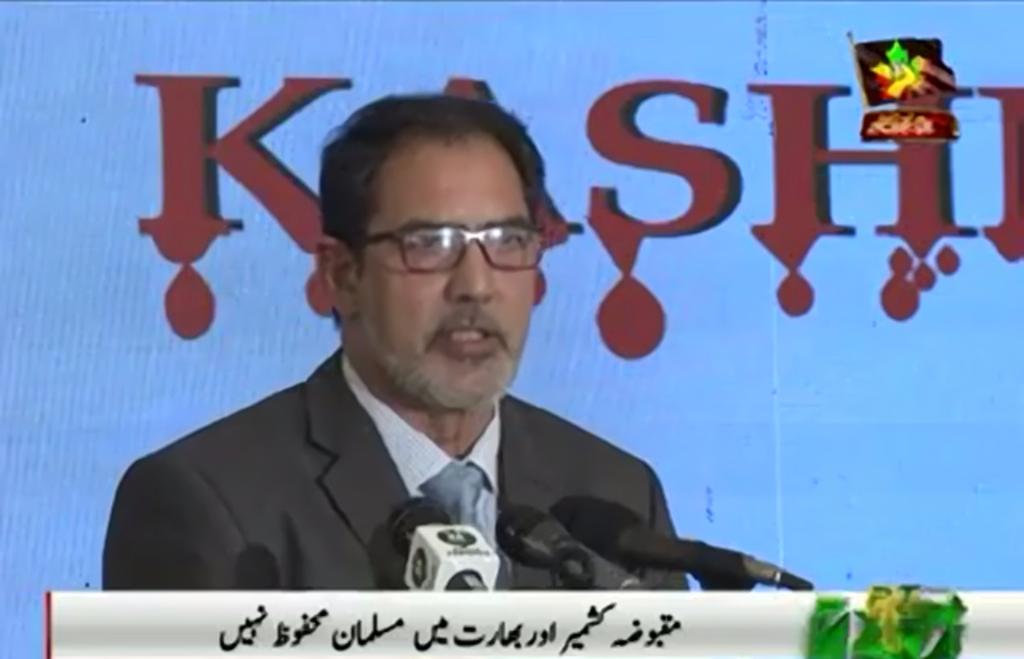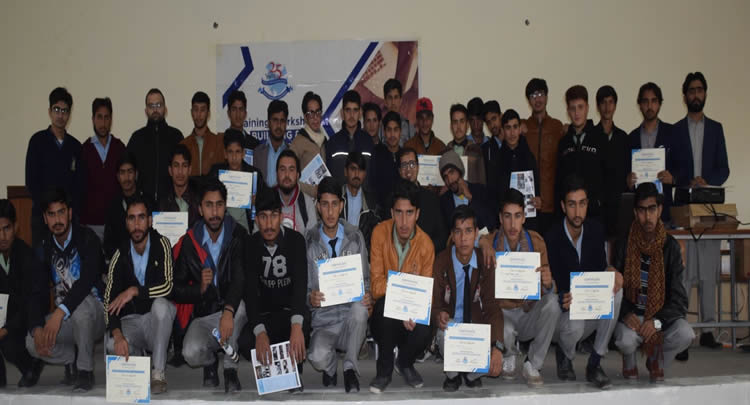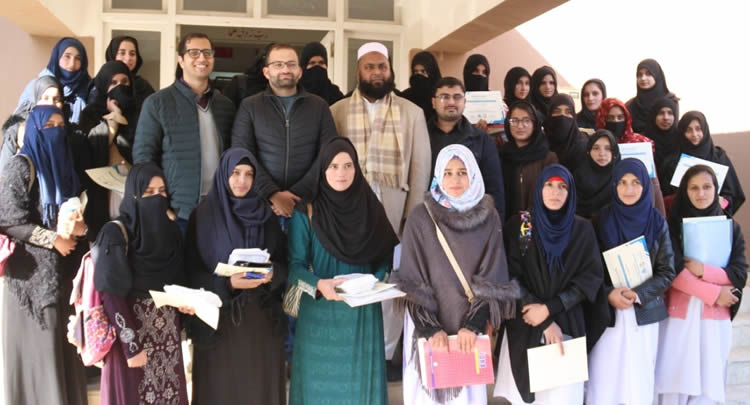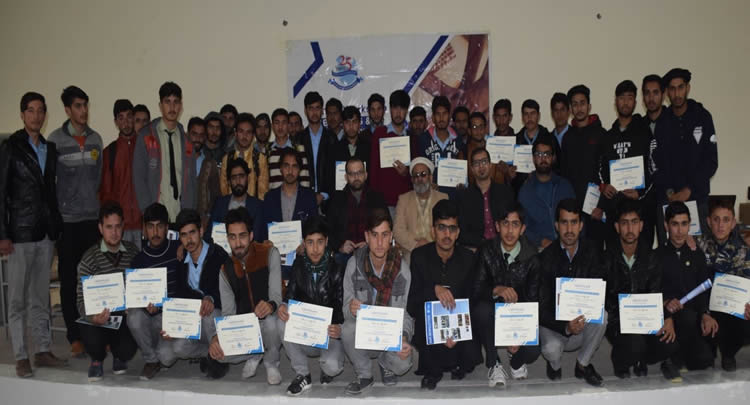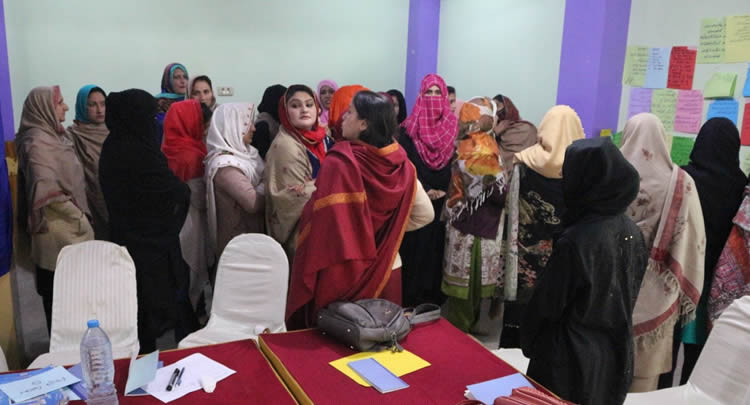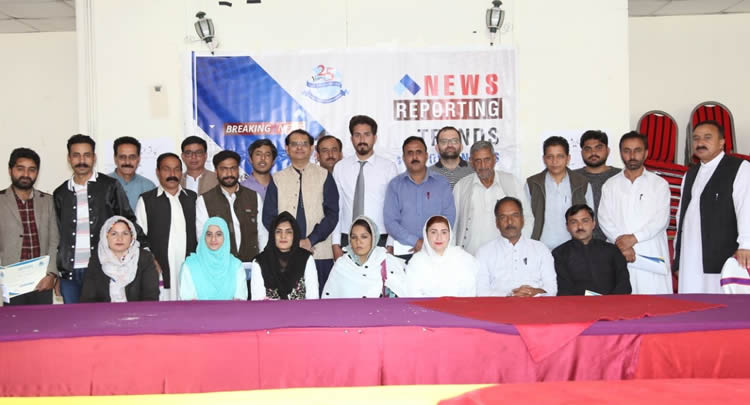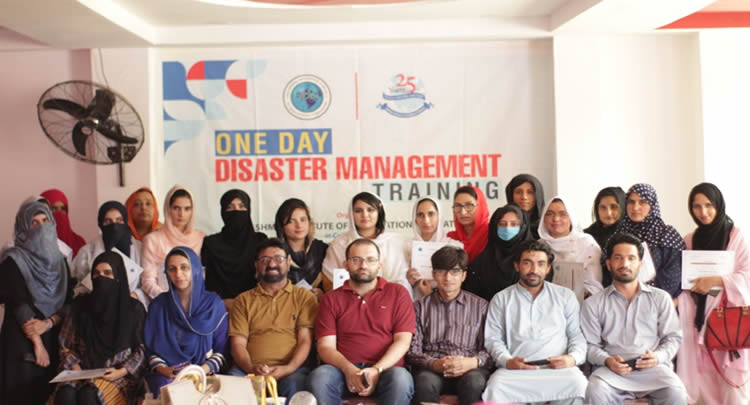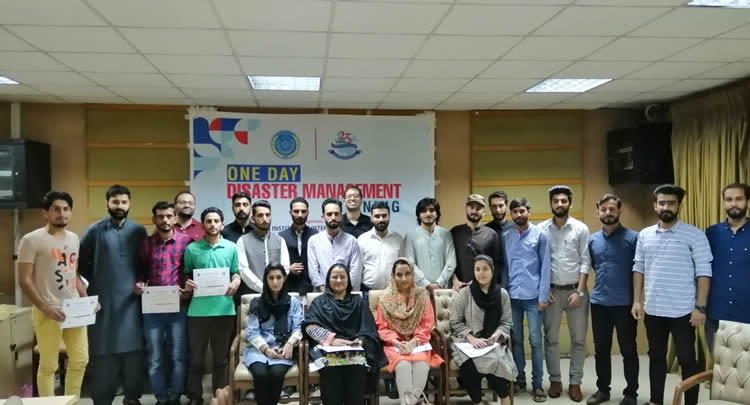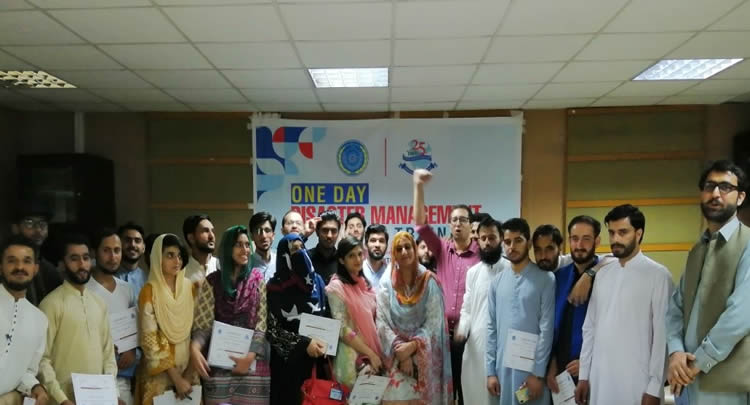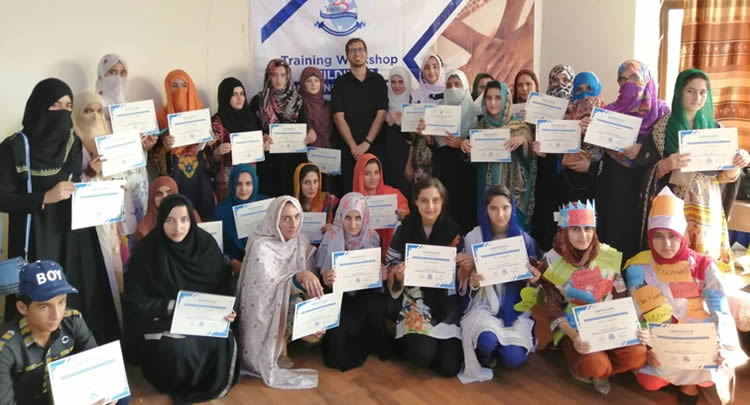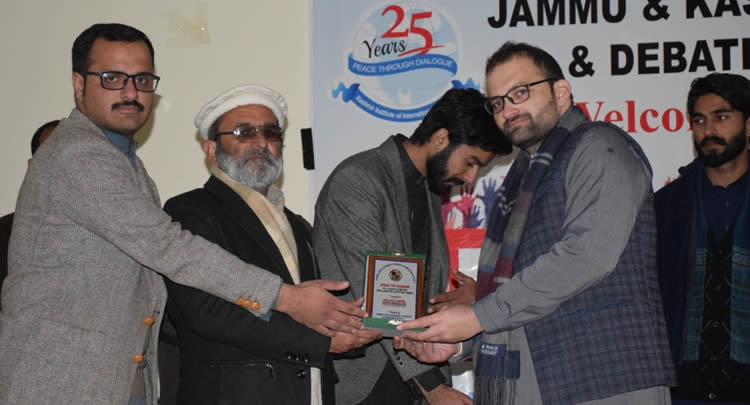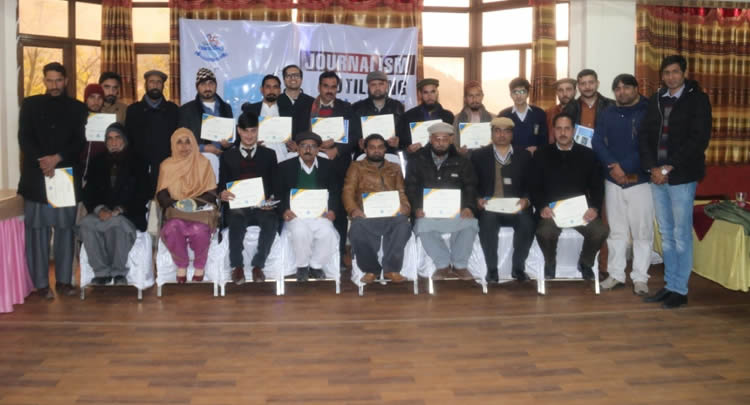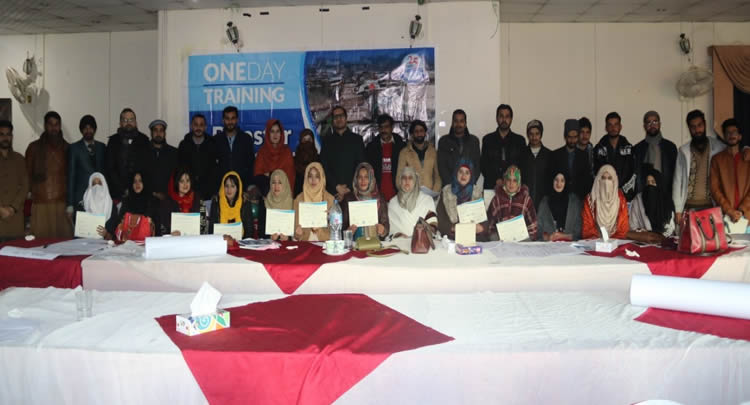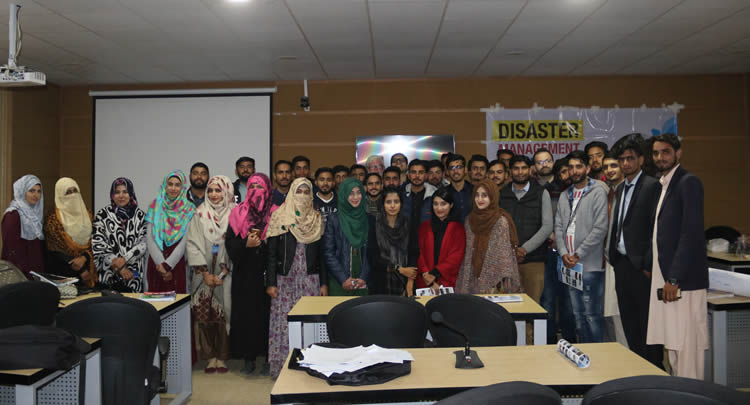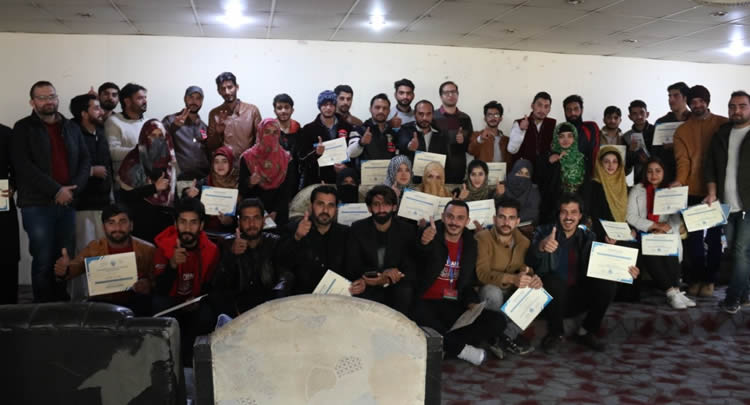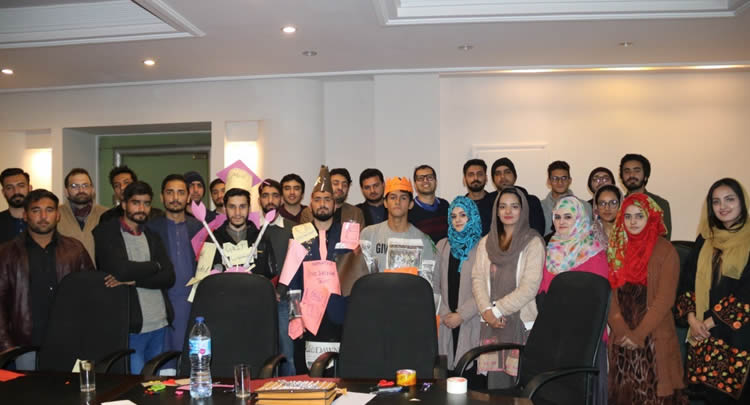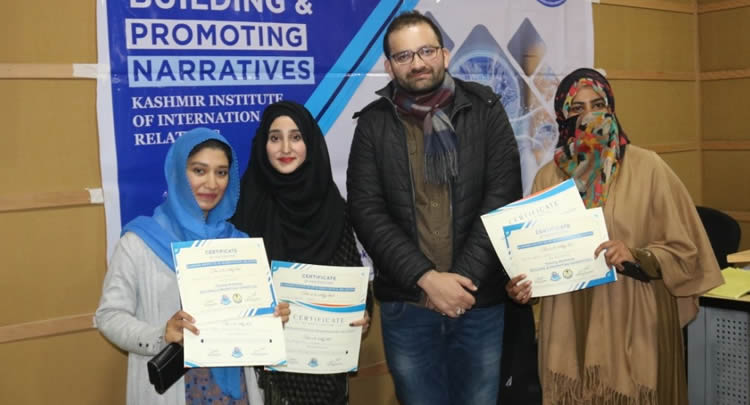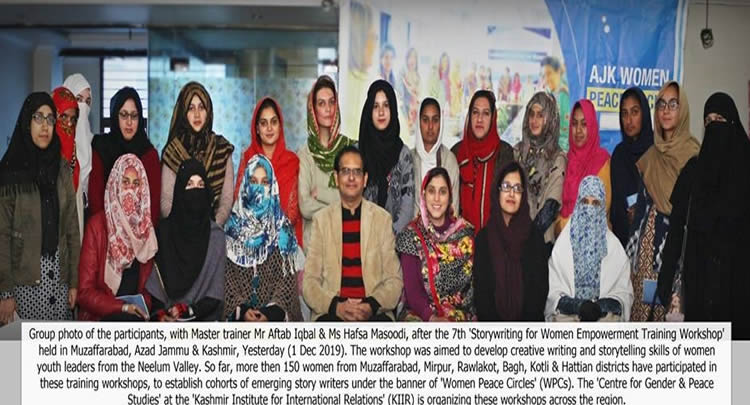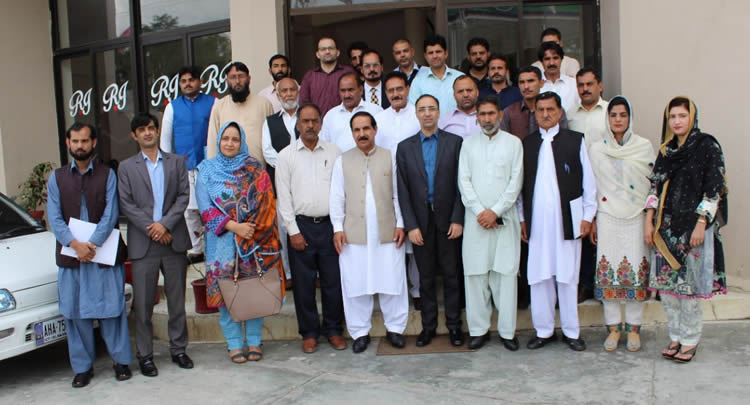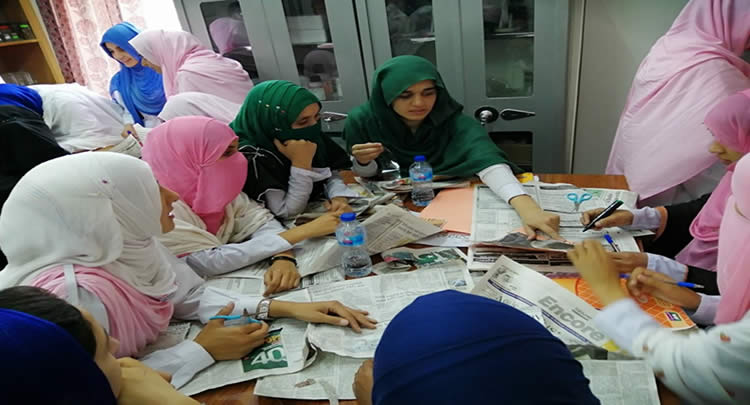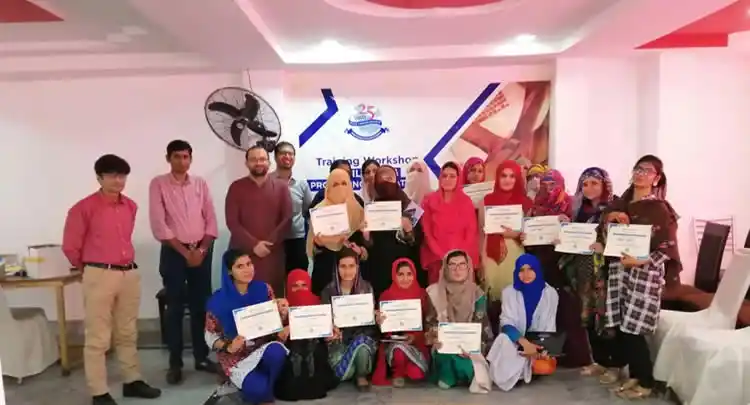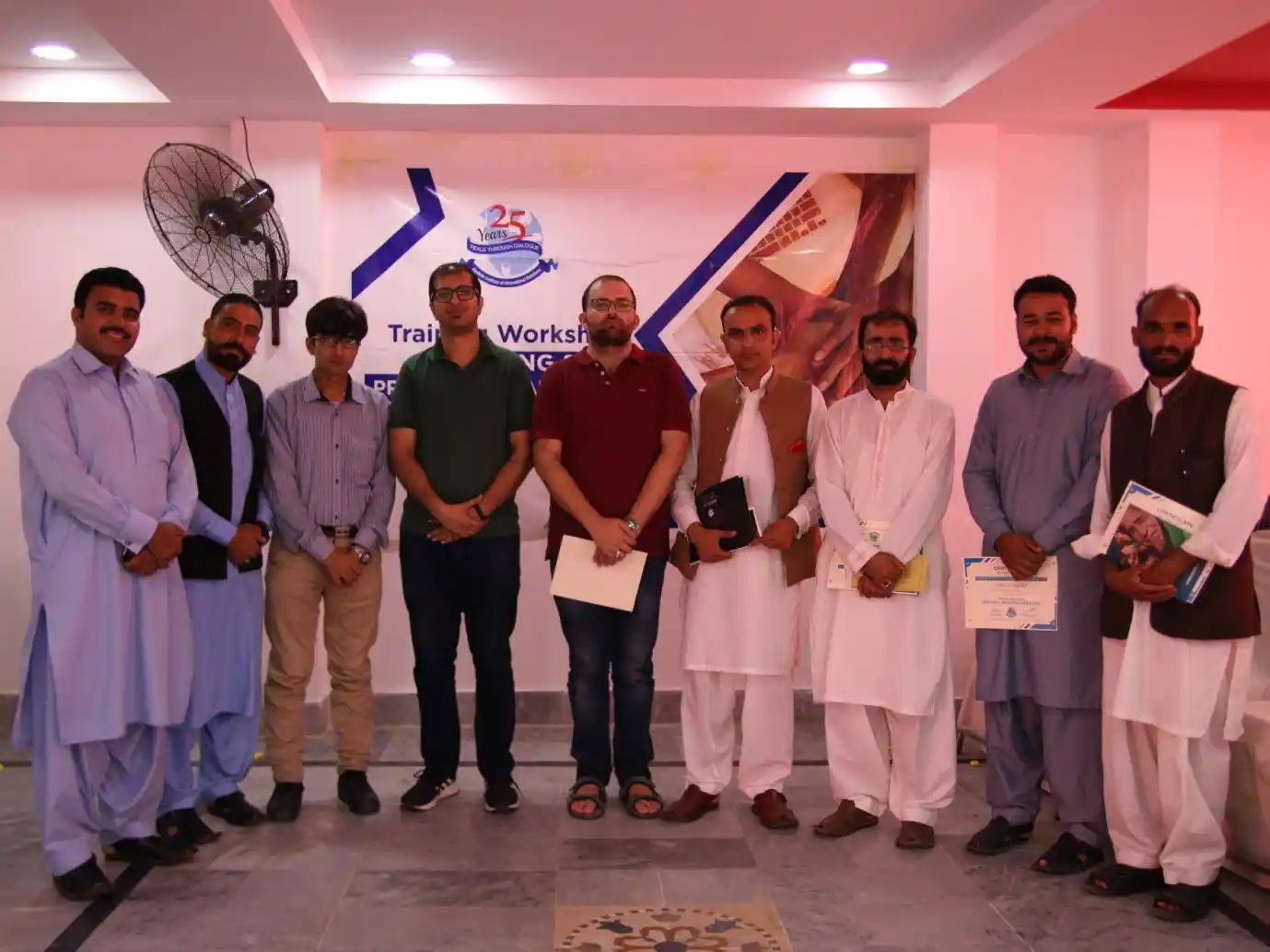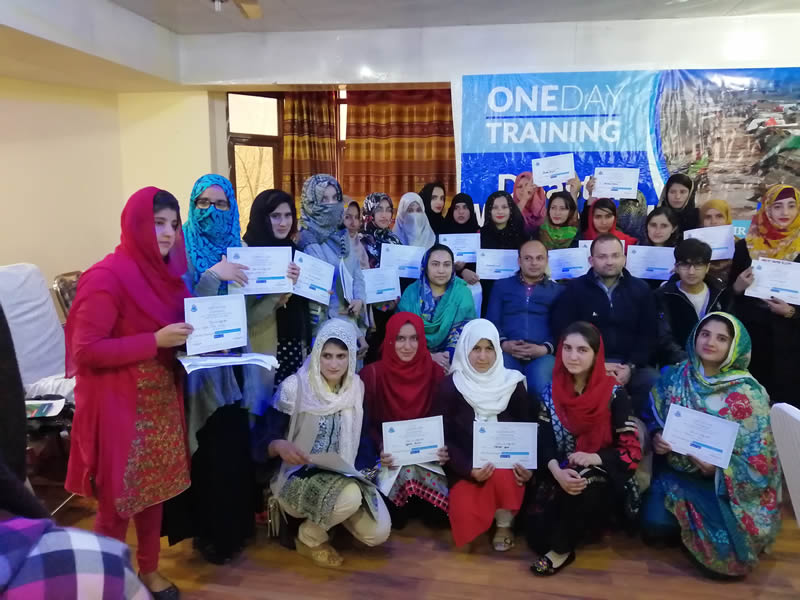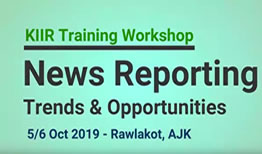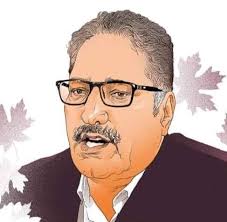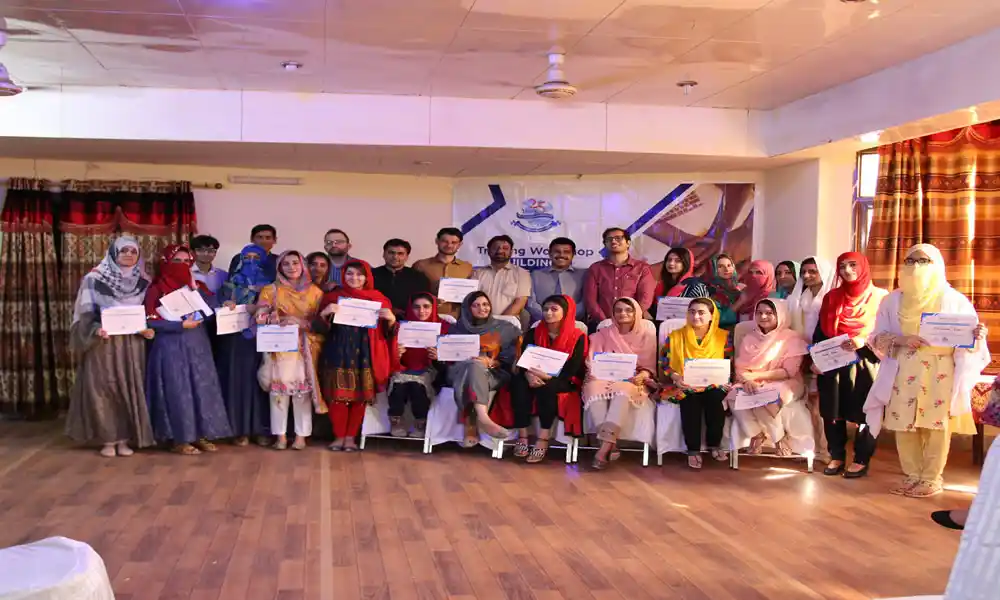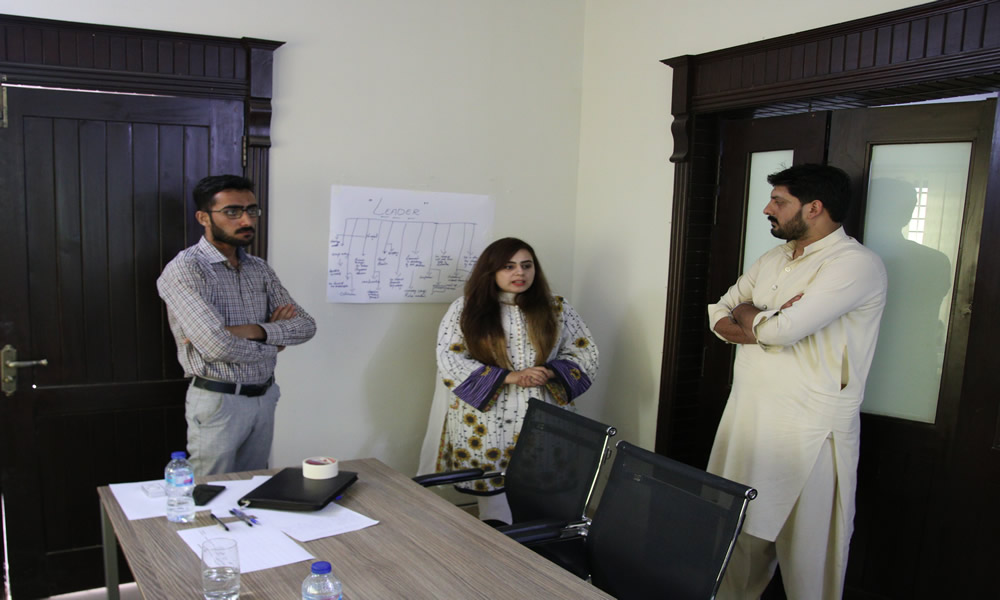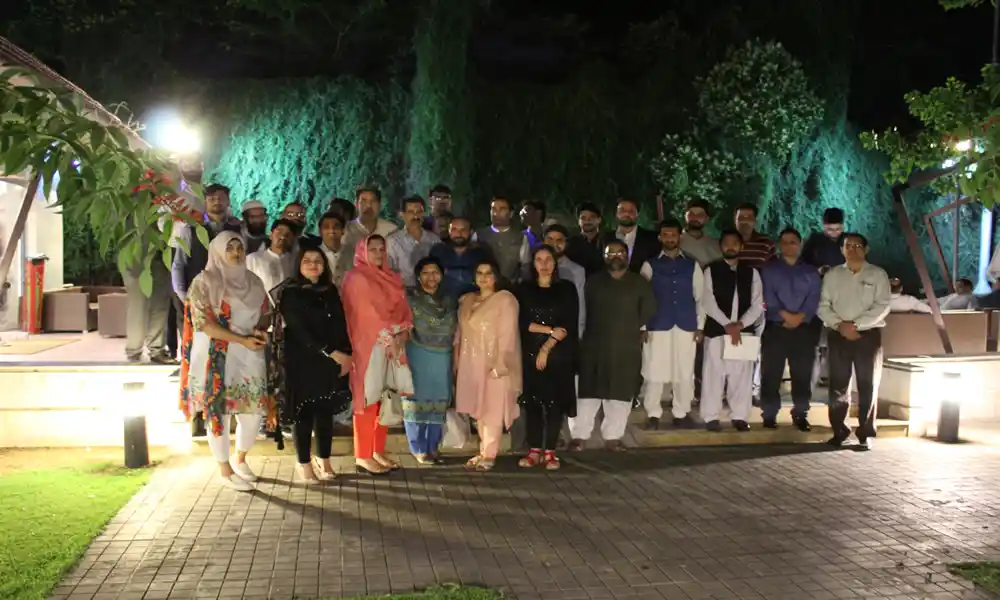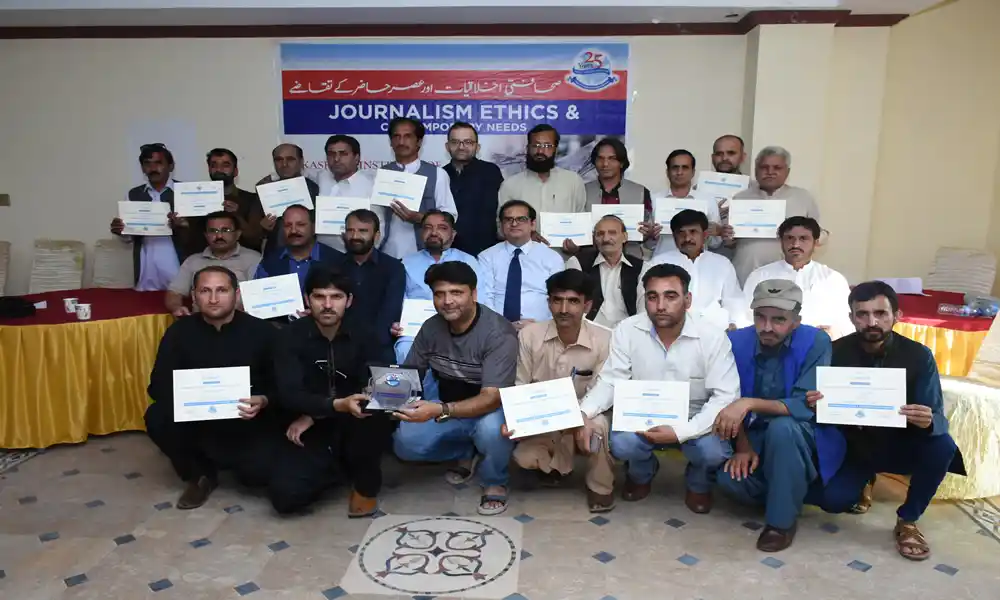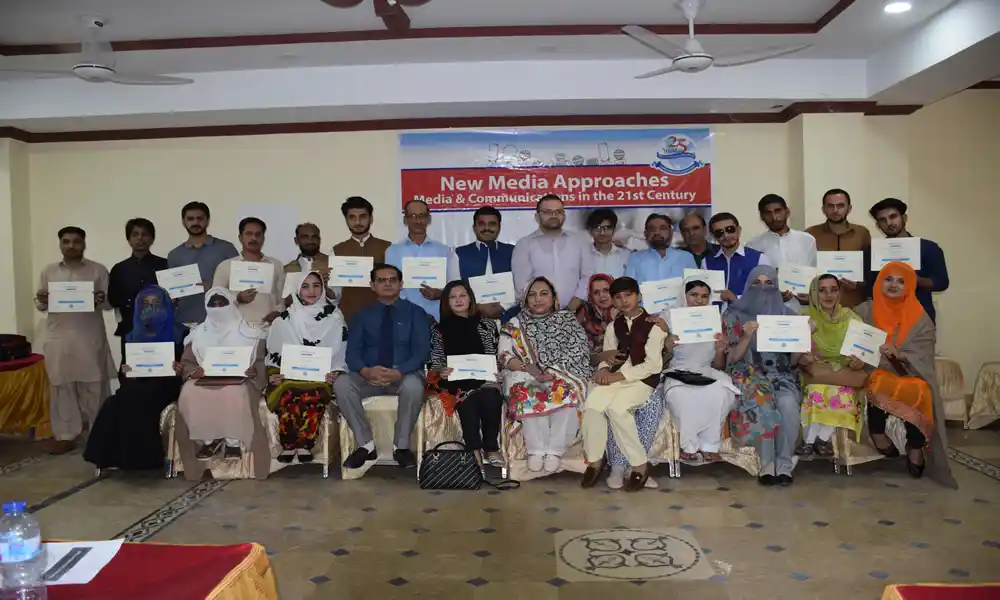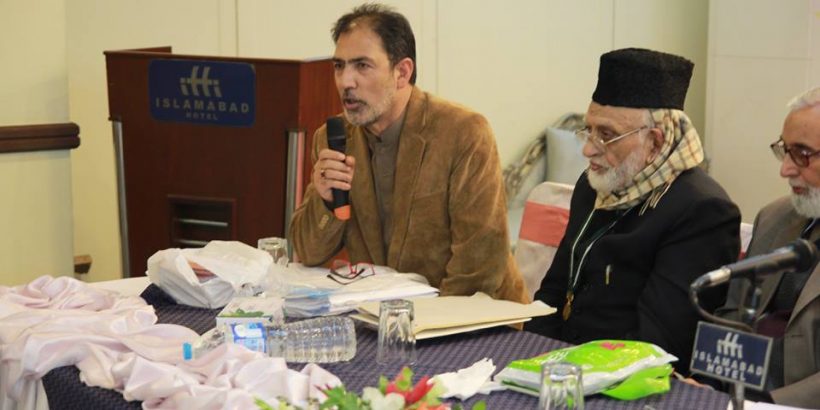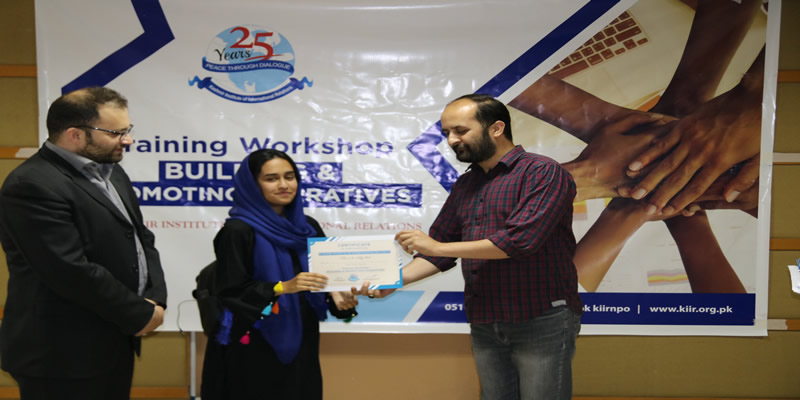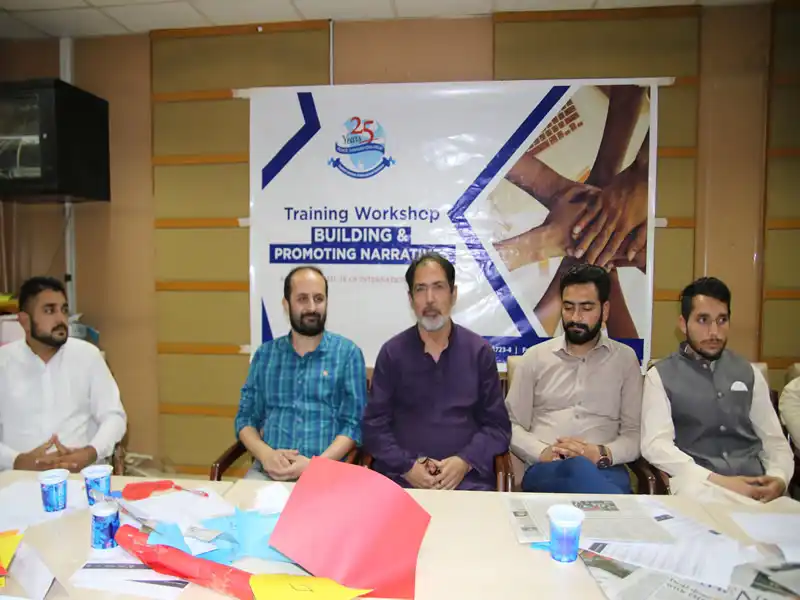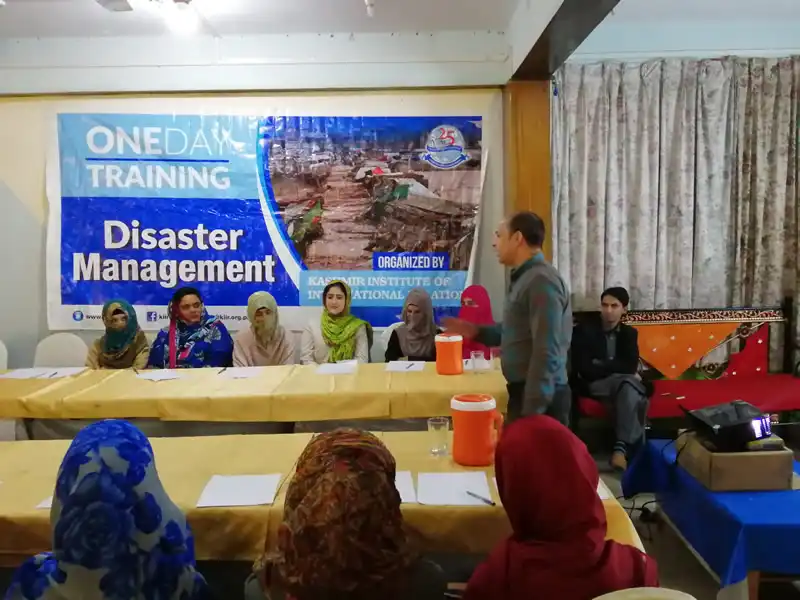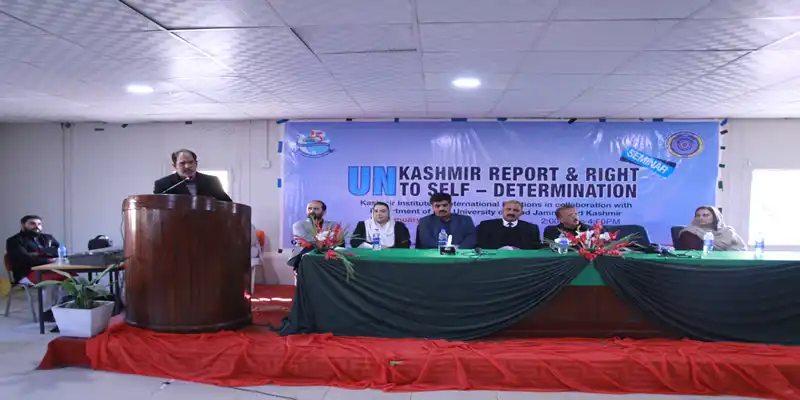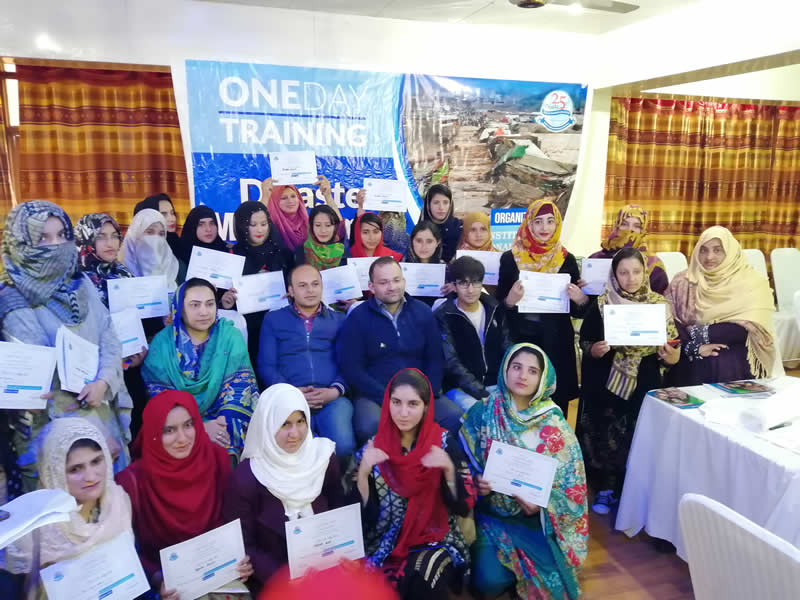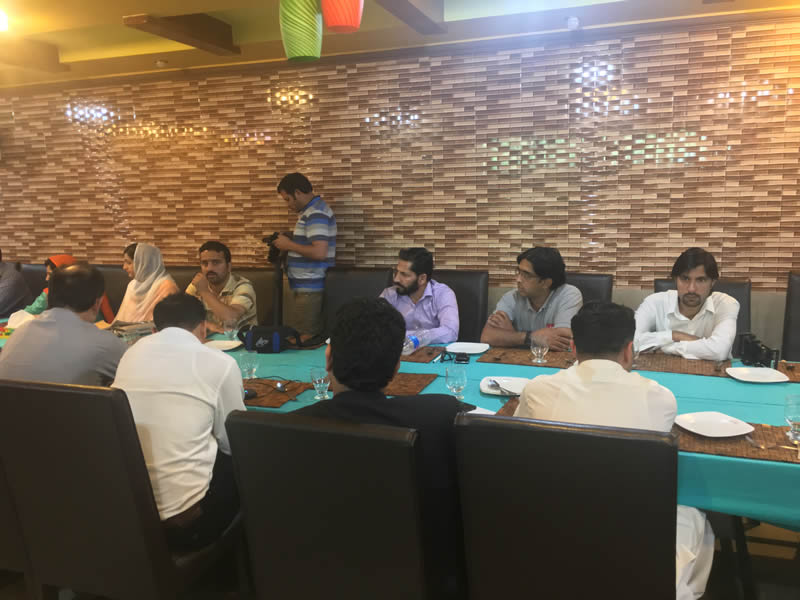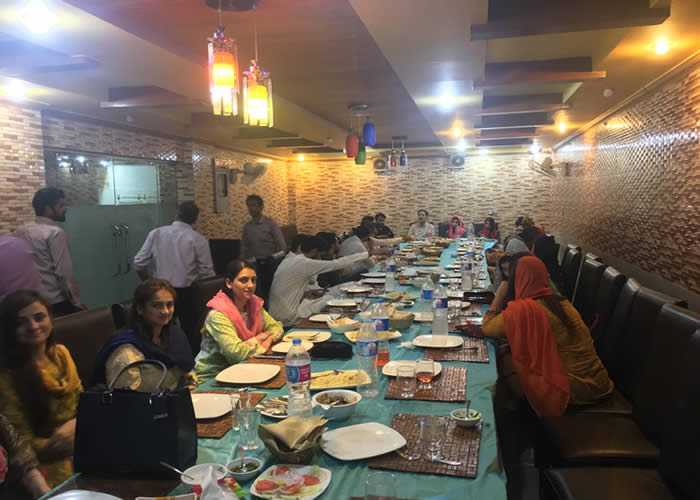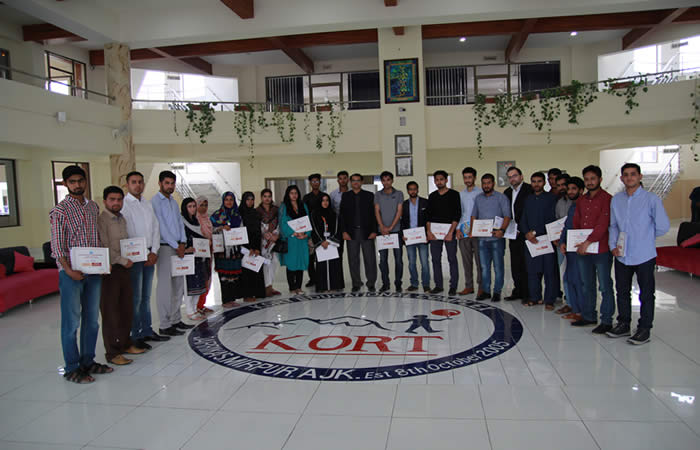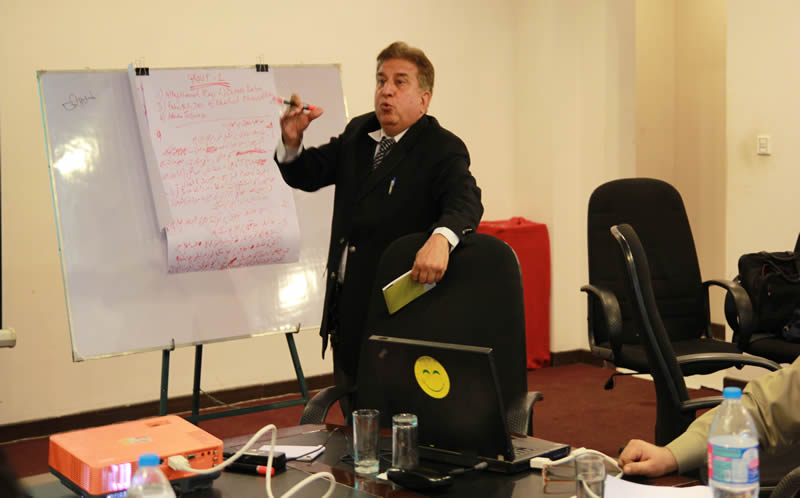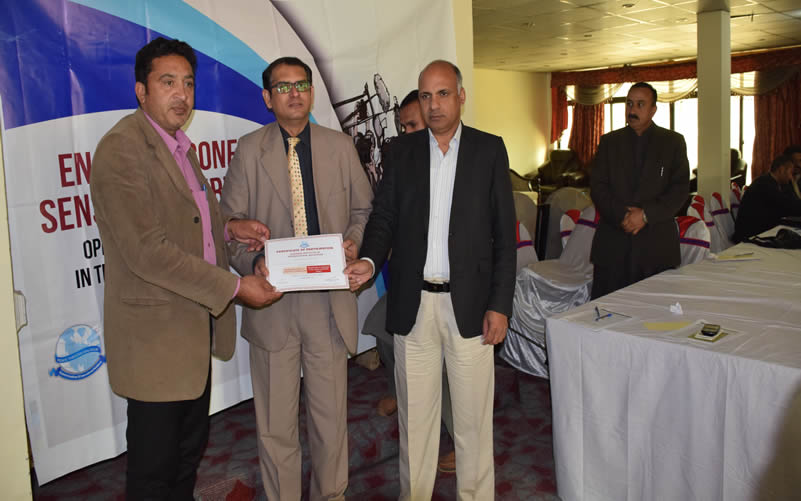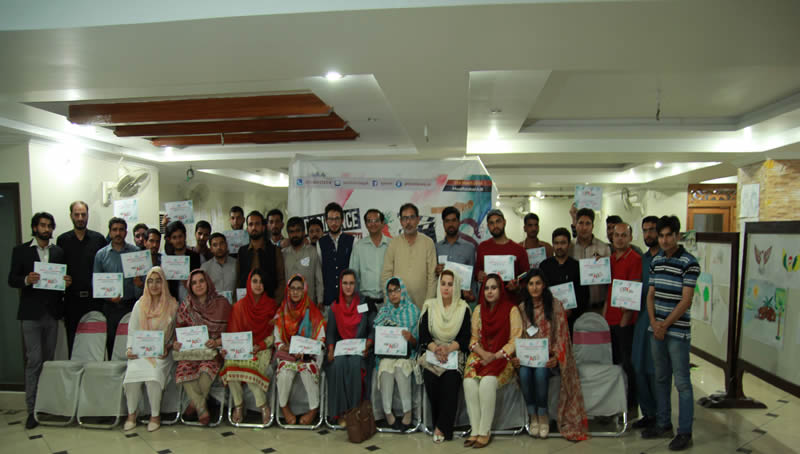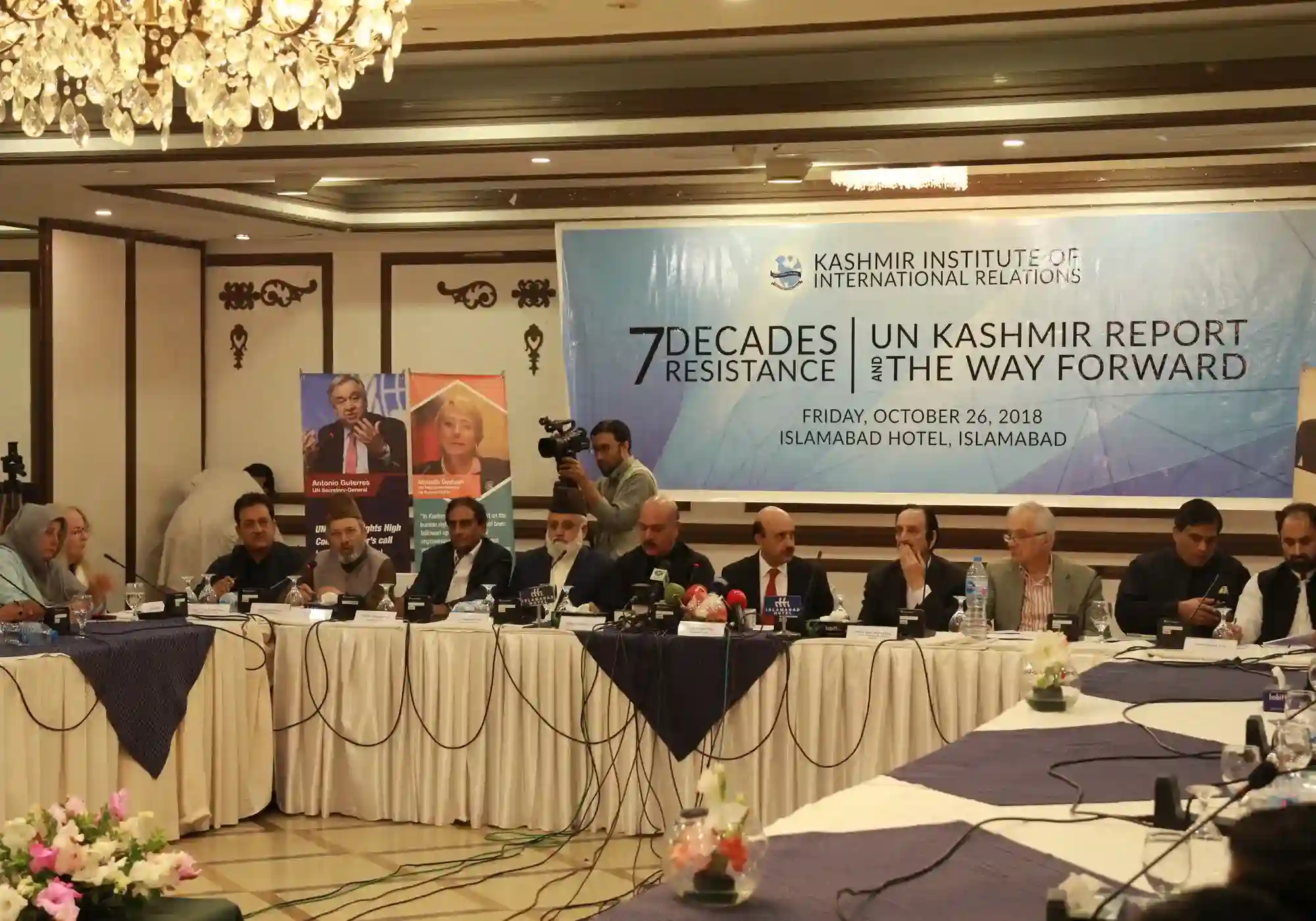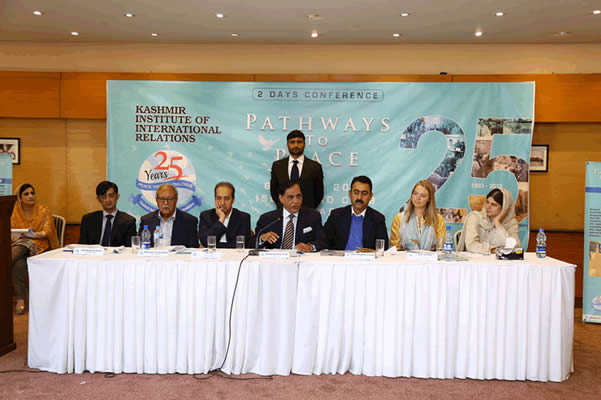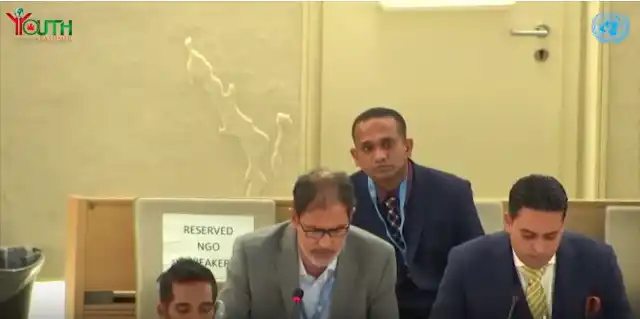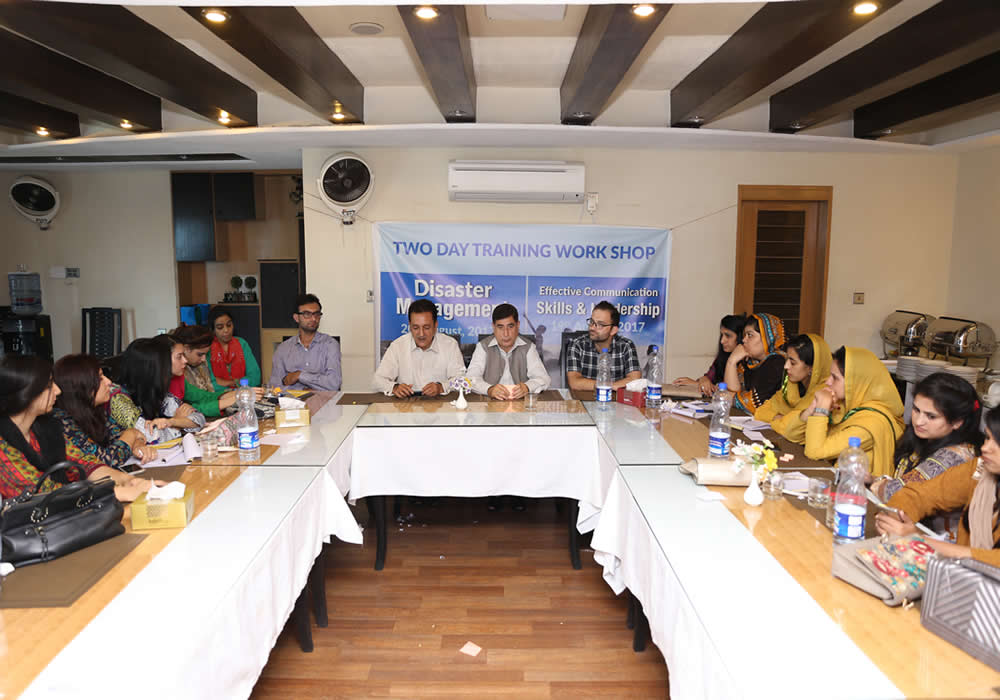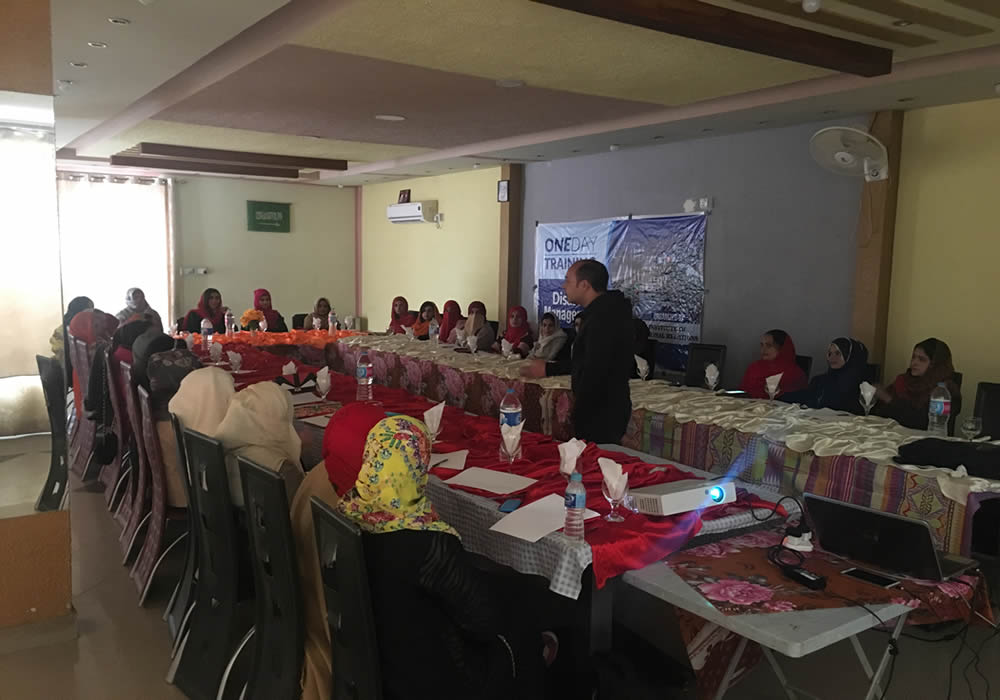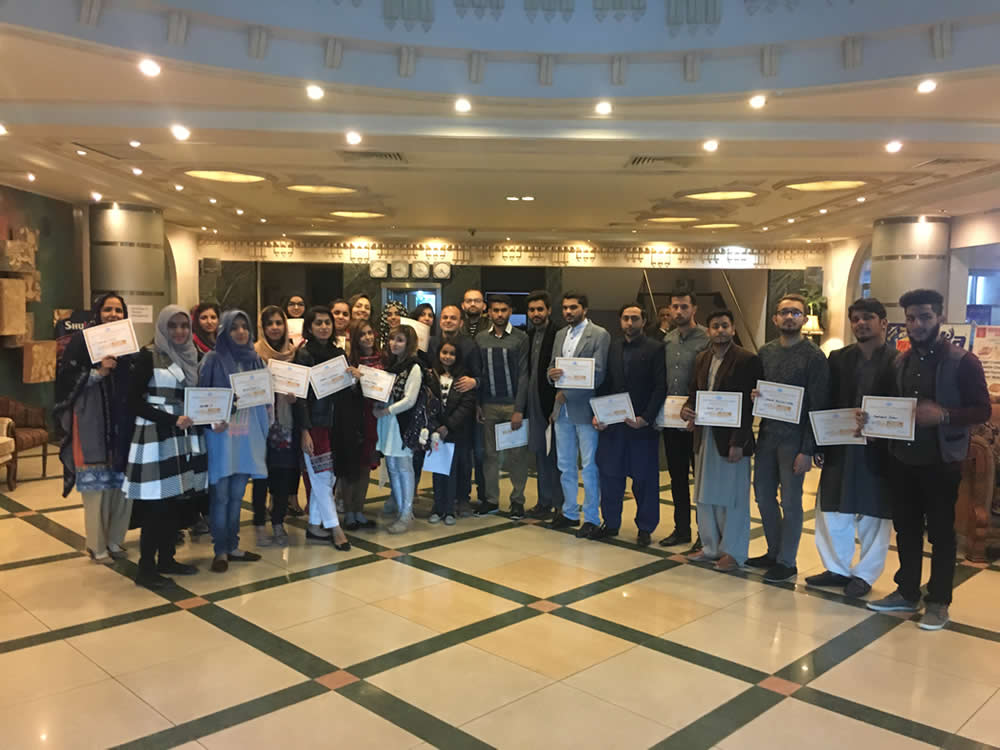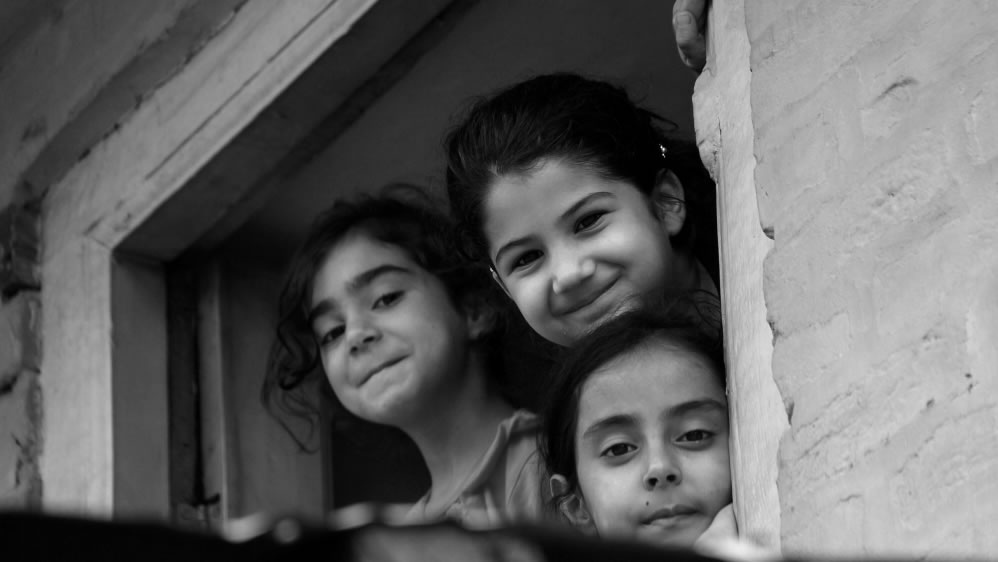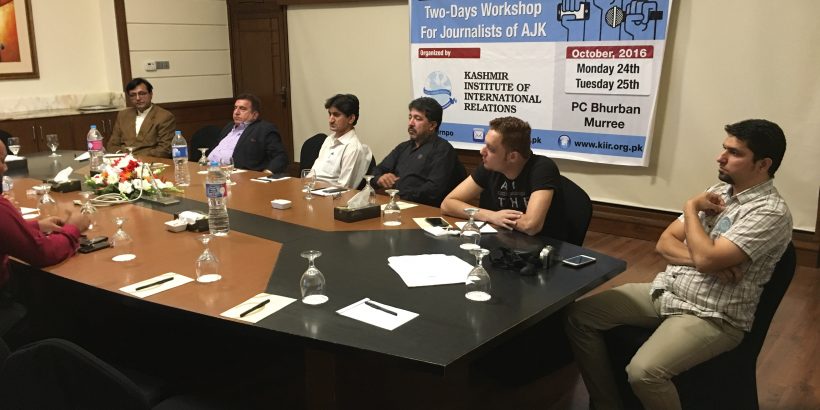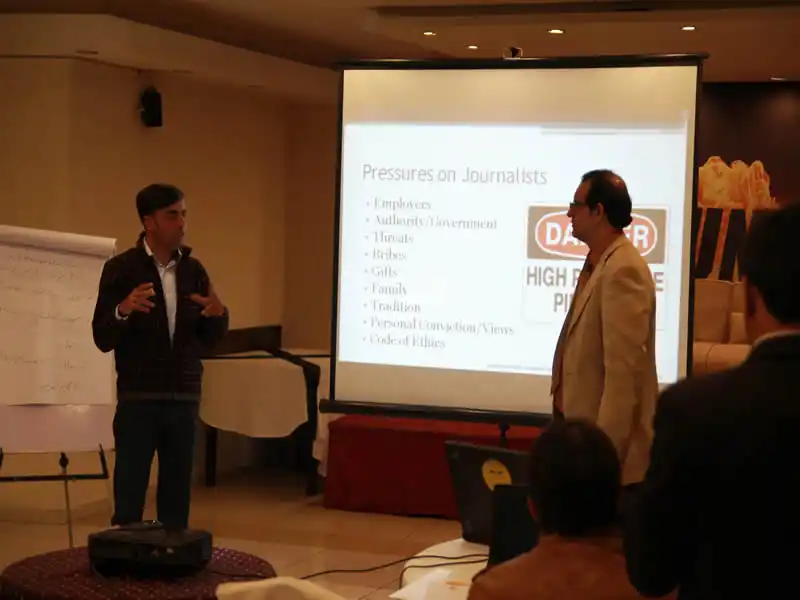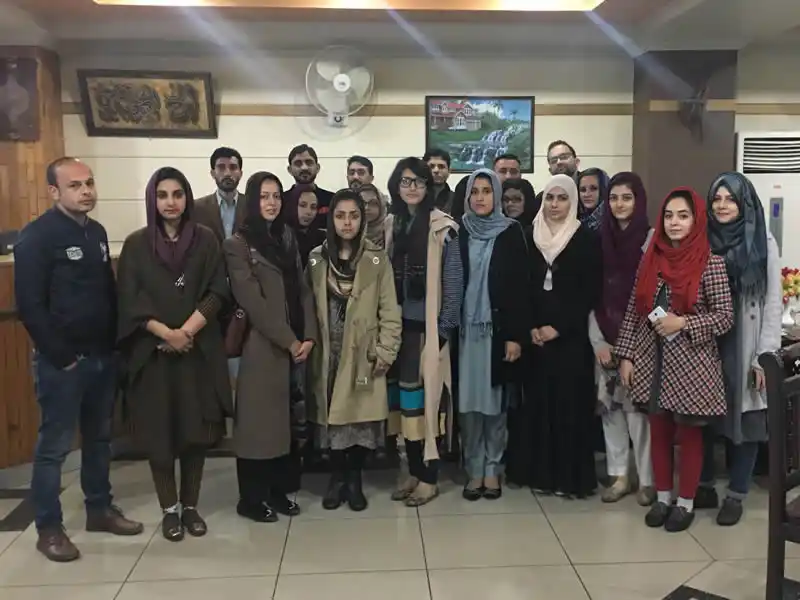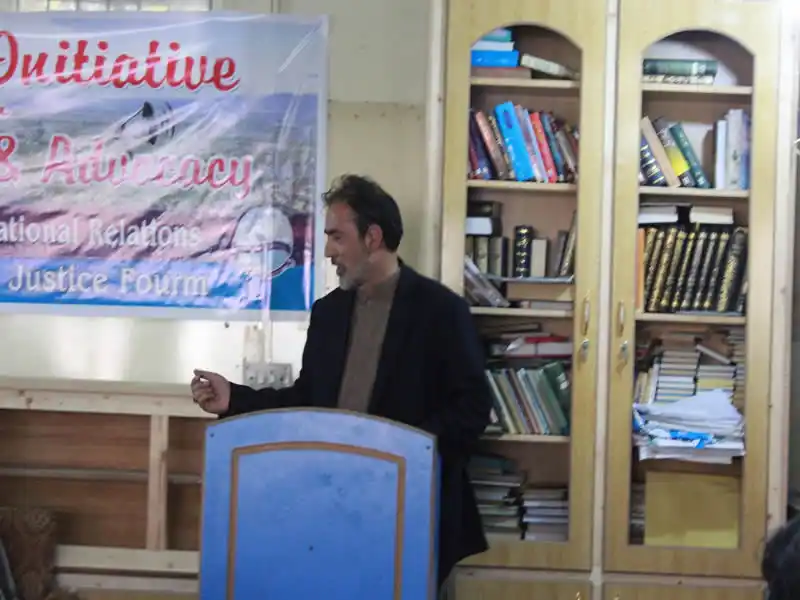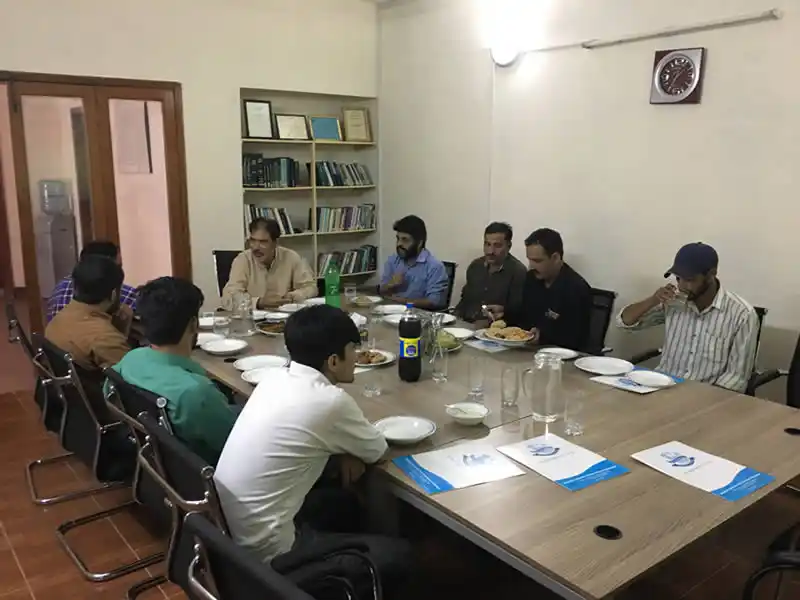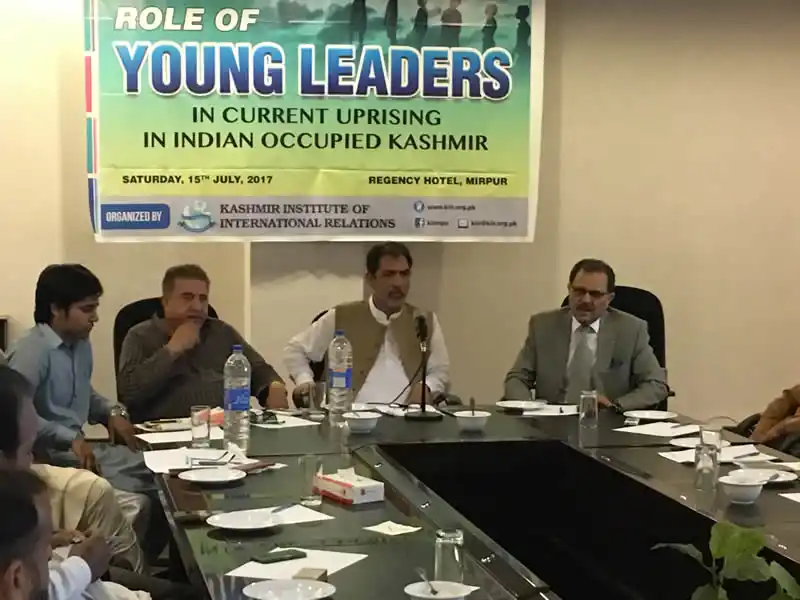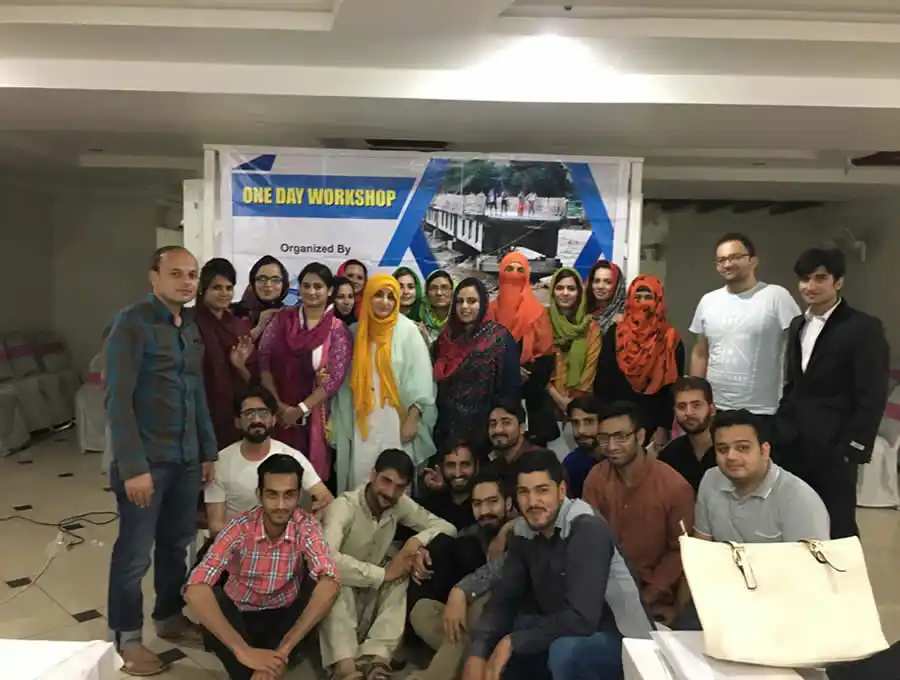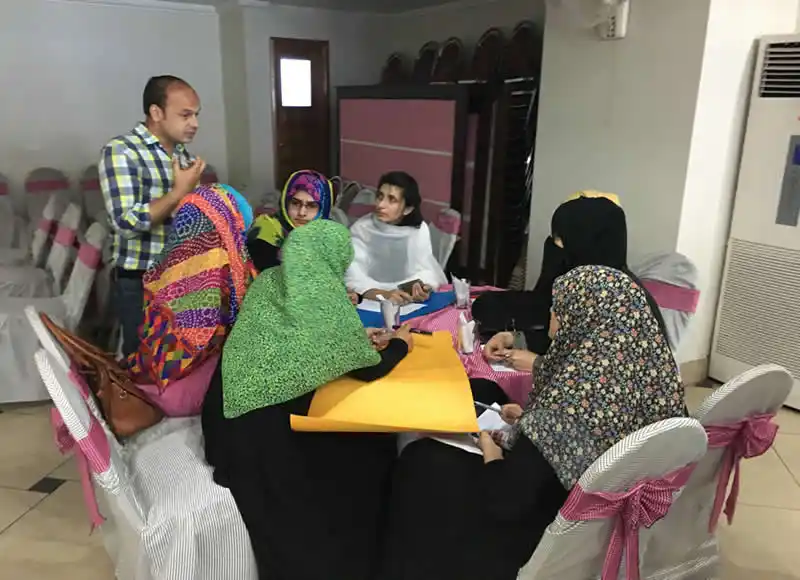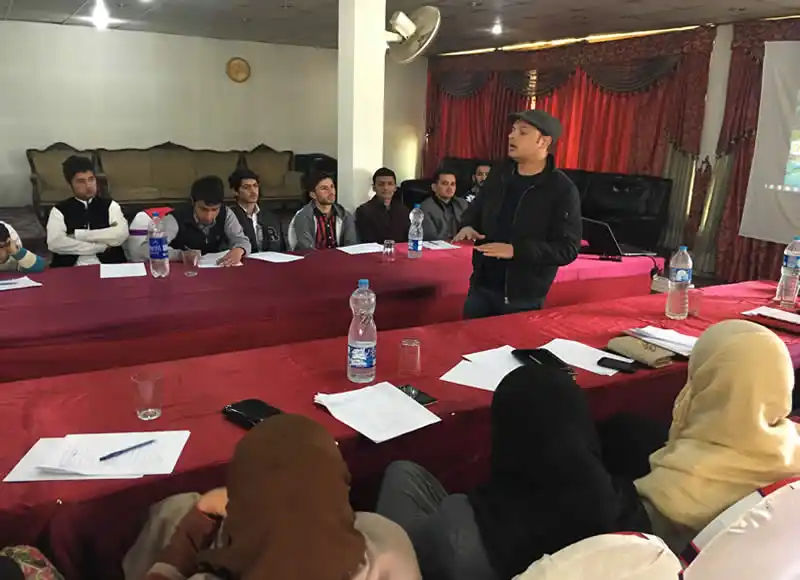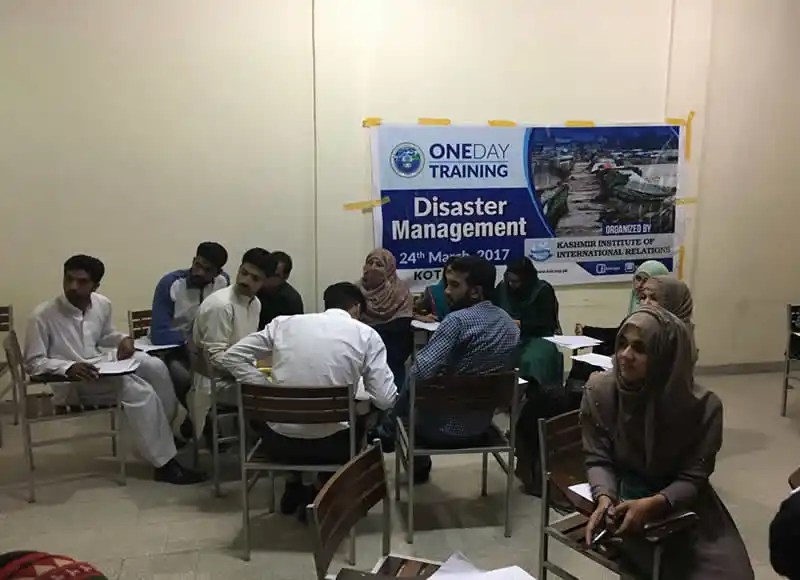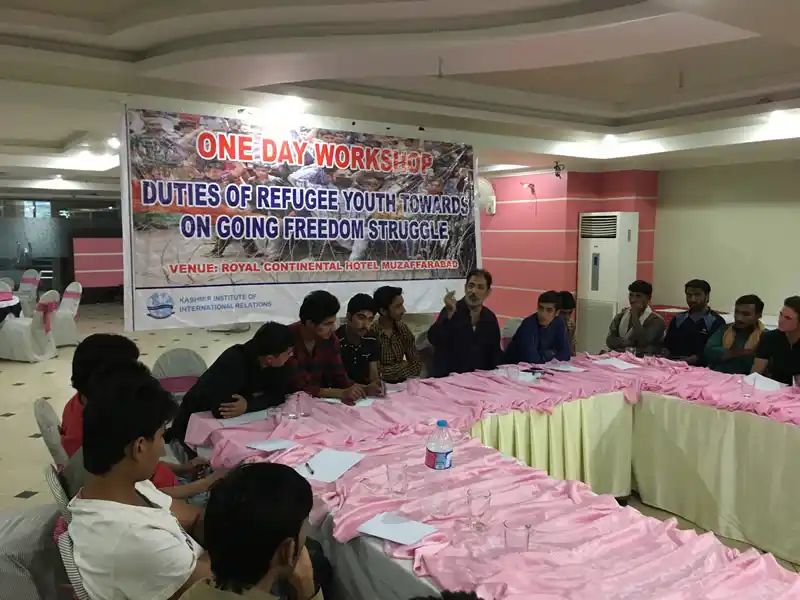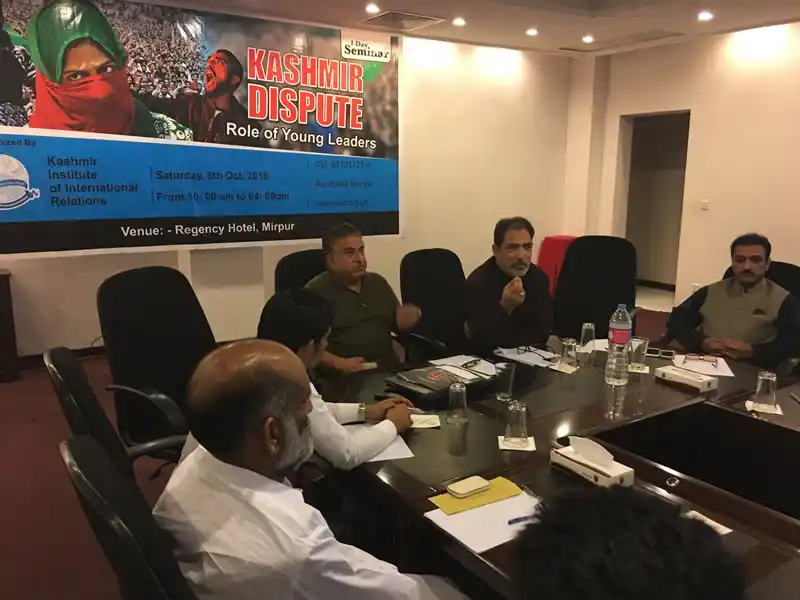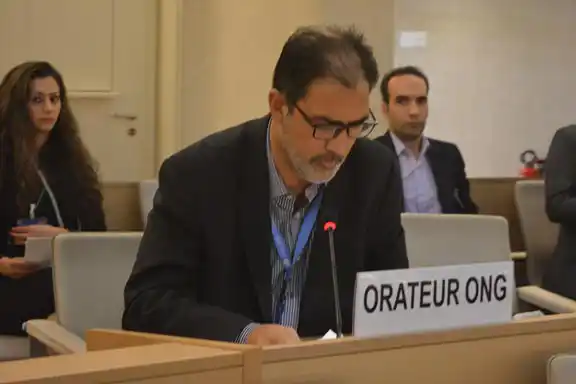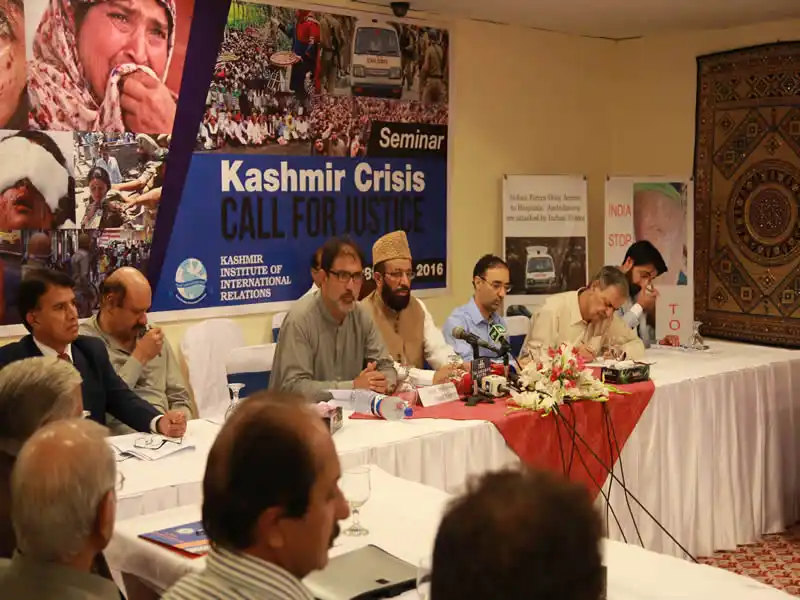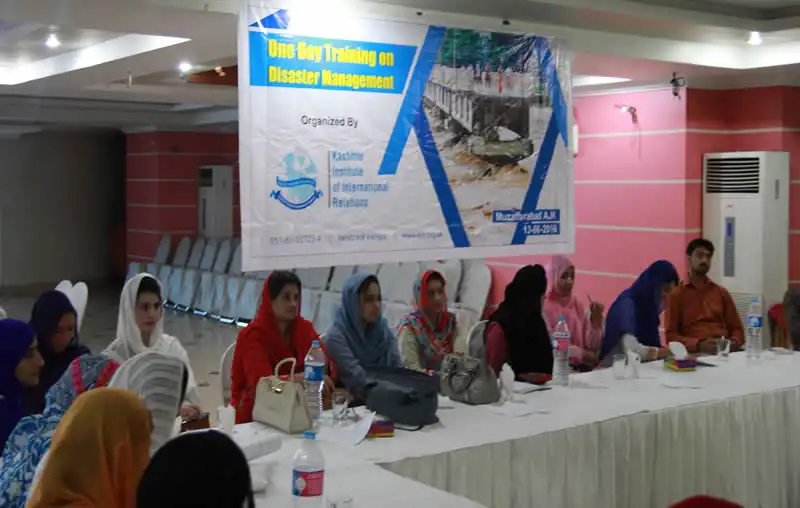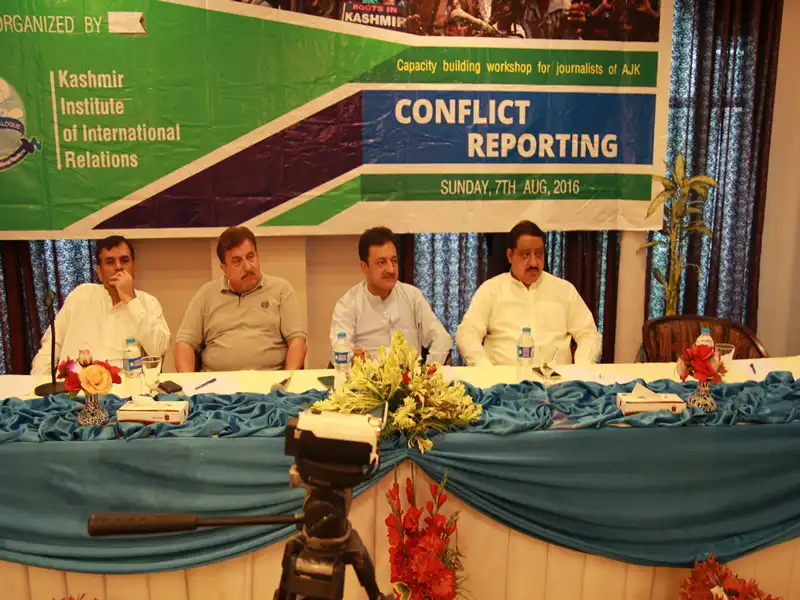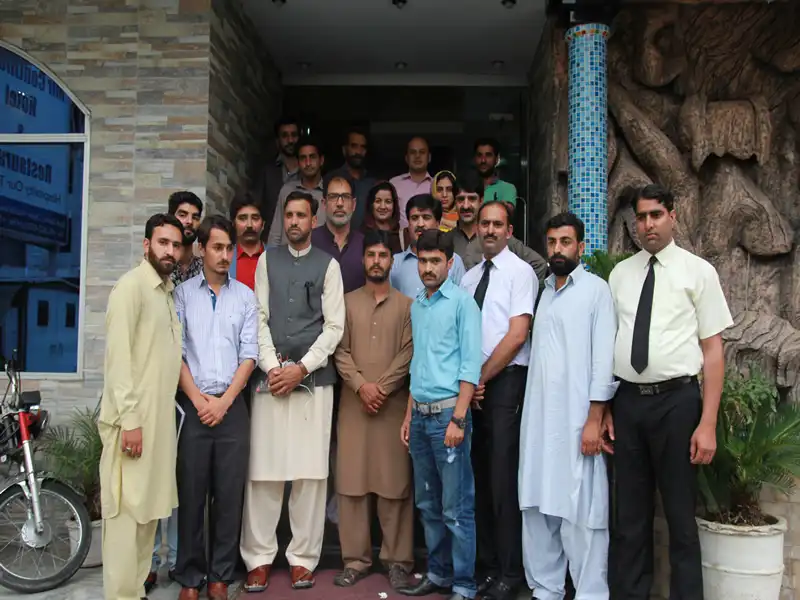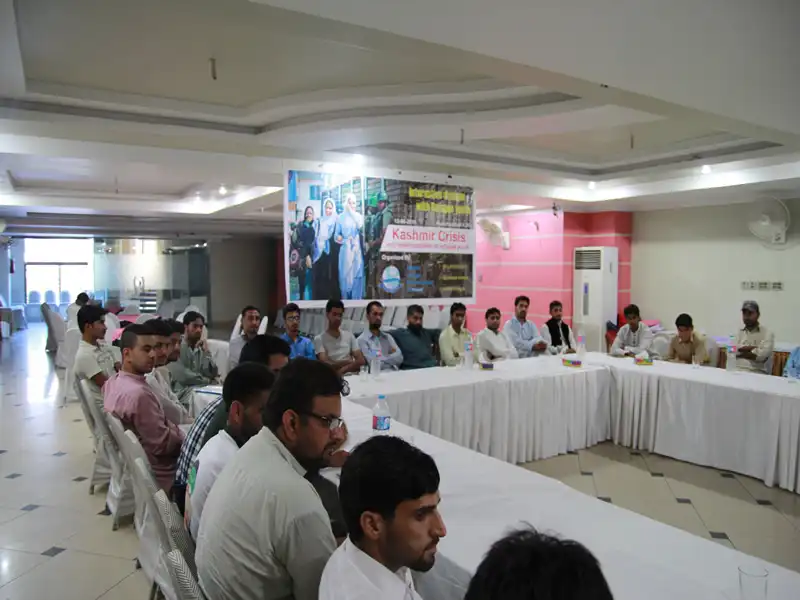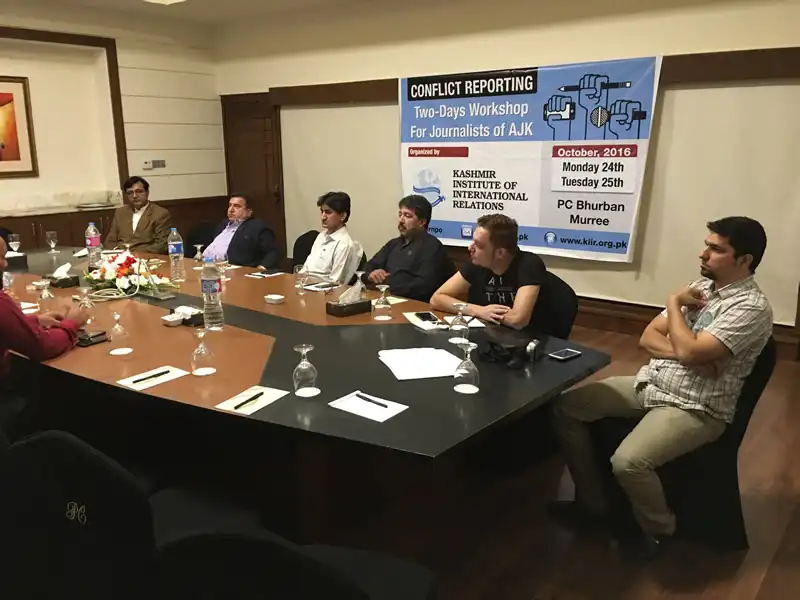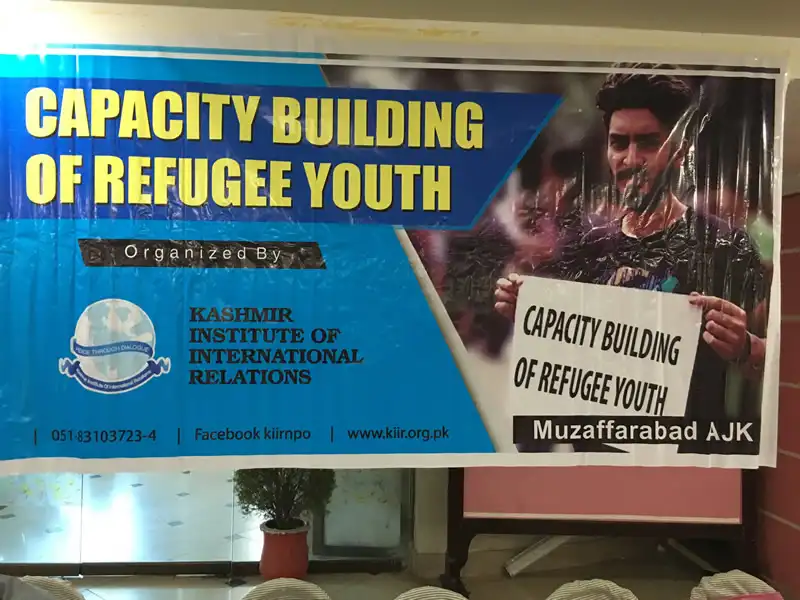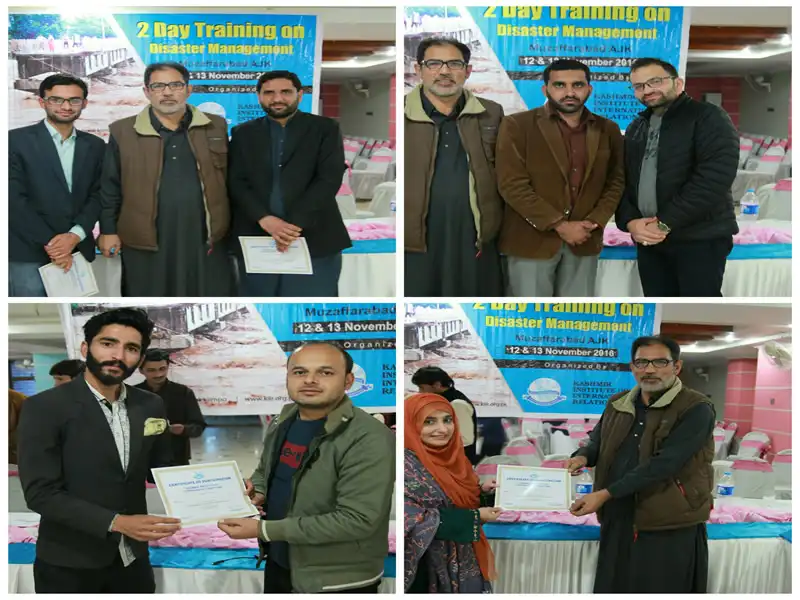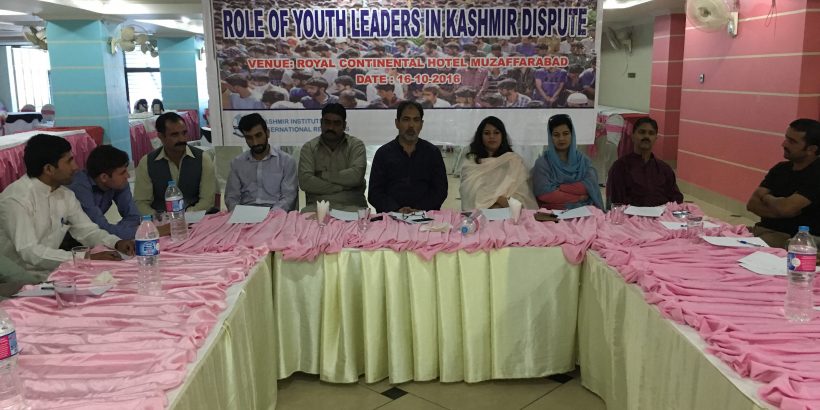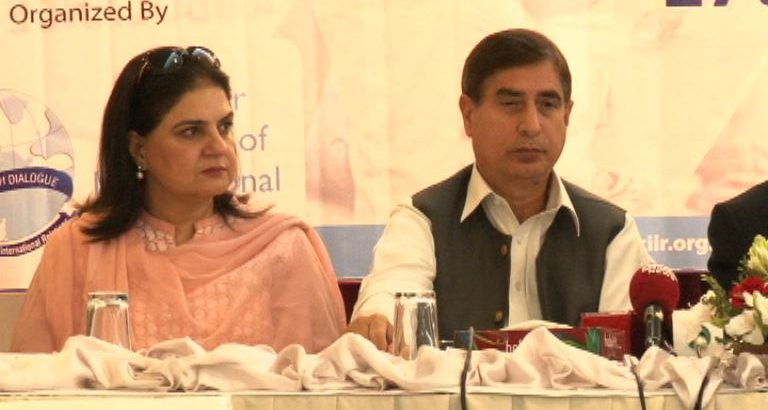Seminar Kashmir Crisis “CALL FOR JUSTICE”
Seminar Kashmir Crisis “CALL FOR JUSTICE”
Posted on 7/28/2016
In the wake of the recent unrest in Indian Occupied Kashmir, Kashmir Institute of International Relations organized a seminar titled “Kashmir Crisis – Call for Justice” in Islamabad Hotel, Islamabad on 28th July, 2016. The purpose of this seminar was to discuss the current status & ongoing human rights violation in Kashmir. On 8 July, 2016, Hurriyat commander Burhan Wani was martyred by Indian forces, as news spread, violent clashes broke out in the valley. The latest upsurge in violence in Kashmir caused many innocent killings and left thousands of protesters injured.
Seminar started with the special prayers for the Kashmiri martyrs. Altaf Hussain Wani, Director Programs KIIR, welcomed the participants and introduced the objectives of the workshop. Large number of Scholars, students, ambassadors, professors, human rights activists attended this seminar.
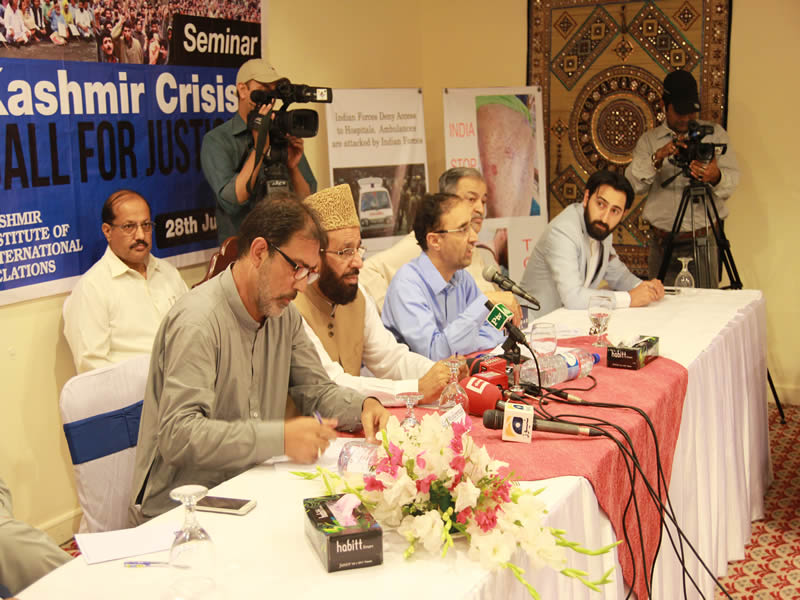
The Federal Minister for Religious Affairs and Inter-faith Harmon, Sardar Muhammad Yousaf, in his address expressed regret over the loss of innocent lives and injuries in the deadly clashes. He appealed to the United Nations and other international humanitarian organizations to take action to stop human rights violations by Indian troops in occupied Kashmir and use their influence to restore peace in occupied territory.
Mr. Muzamal Thakur said that the excessive use of force in AJK has led to the more than 50 people’s killing while thousands are injured. Indian forces did not spare even kids as many of children & youth are blind due to non-lethal pellets used by Indian forces and this situation has raised many question on India’s blind policies towards Kashmir.
Mr. Rafique Dar, Representative JKLF, said that the Kashmiri people are facing moral blindness, he said that brutal use of pellets during protests, arbitrary detention & extra judicial killings in Kashmir cannot be justified in any case. He further said that the protesters are losing their visions due to the pellets, many of them are still admitted in the hospitals and battling for their lives.
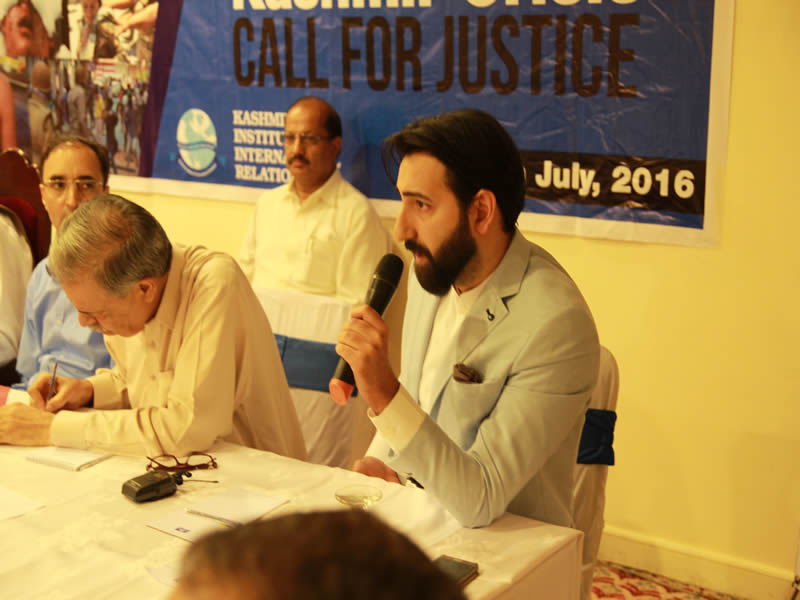
Tahir Masood, Convener APHC (M), said that Kashmir is considered as the most militarized zone of the world. He said that forces imposed curfew, since 9 July, 16, to clamp down the Kashmiri people’s movement, people are not only facing the physical curfew but also the communication curfew as publishers were not allowed to publish newspapers for couple of days, internet and landline phones services were also limited. Normal has been still affected due to curfew imposed by the authorities.
Ershad Mehmud, Executive Director CPDR, said that What is happening in Kashmir is a part of an institutionalised policy of the Indian government against the people of the Kashmir. He further said that current situation of Kashmir is so painful, due to the recent clashes many of people have sustained serious injuries that caused long term damages to them. He condemned the extrajudicial killing of Burhan Wani & other innocent protesters and arbitrary detention of Kashmiri leadership in Indian held Kashmir.
Dr. Muhammad Khan said that the present scenario of Kashmir witnesses that there is a war on youth in Kashmir to disintegrate the youth from the just cause of Kashmir’s freedom struggle. They are trying to overshadow the dominant discourse of resistance.
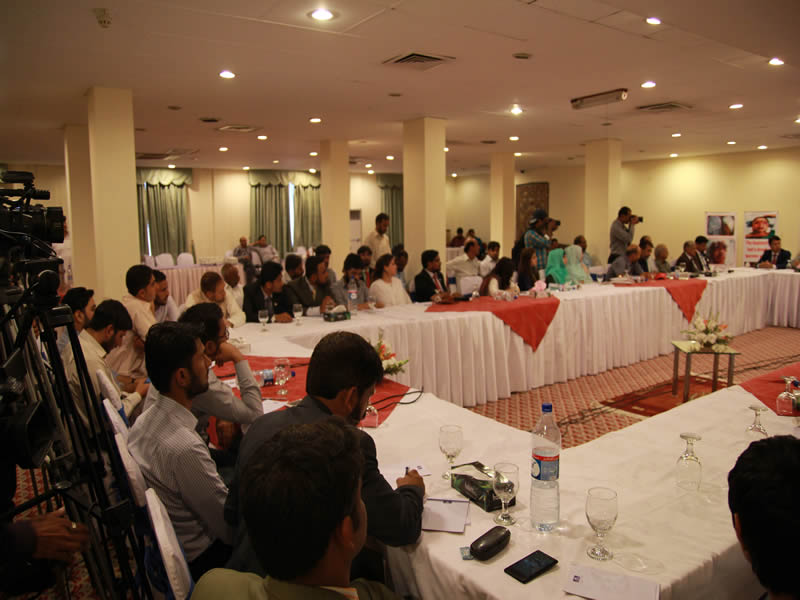
Crux of the Seminar:
I. It is a matter of deep concern that people of Kashmir have been living under oppressive rule since before the partition of the Sub- continent & Indian government is using the Kashmir situation for its political rhetoric instead of working to resolve the Kashmir issue.
II. In order to cessation violence in Kashmir, there should be some action taken by all parties.
III. International influence to restore peace in Kashmir is necessary as only this will help to put an end on human rights violation in Kashmir & should impose humanitarian laws/acts like Armed Forces Special Power Act which provides impunity to the armed forces from any civil persecution.
IV. To avoid another bloodshed in Kashmir, things should be brought under control as quickly as possible.
V. There must be change in India’s policy towards its neighbouring countries and especially towards Kashmir.
VI. The demands of the people of Kashmir for the right of self- determination should be accepted as it is the only way to bring a long-lasting peace in the region.
VII. Participants condemned the use of disproportionate force against the peaceful protesters & unanimously appealed to the world community to take notice of the recent killings and violations of international humanitarian law by Indian forces in Kashmir, they also underscored the need of implementation of UN resolutions on Kashmir.
At the end, participants also offered Fateha for the martyrs.
More Activities



